.

A foreign national holds a knife following clashes between a group of locals and police in Durban amid ongoing violence against foreign nationals: photo by AFP via The Guardian, 14 April 2015

XENOPHOBIA. Elle se cache en nous, elle a toujours été là. La peur de l'autre: image by Christopher Dombres, 12 January 2014
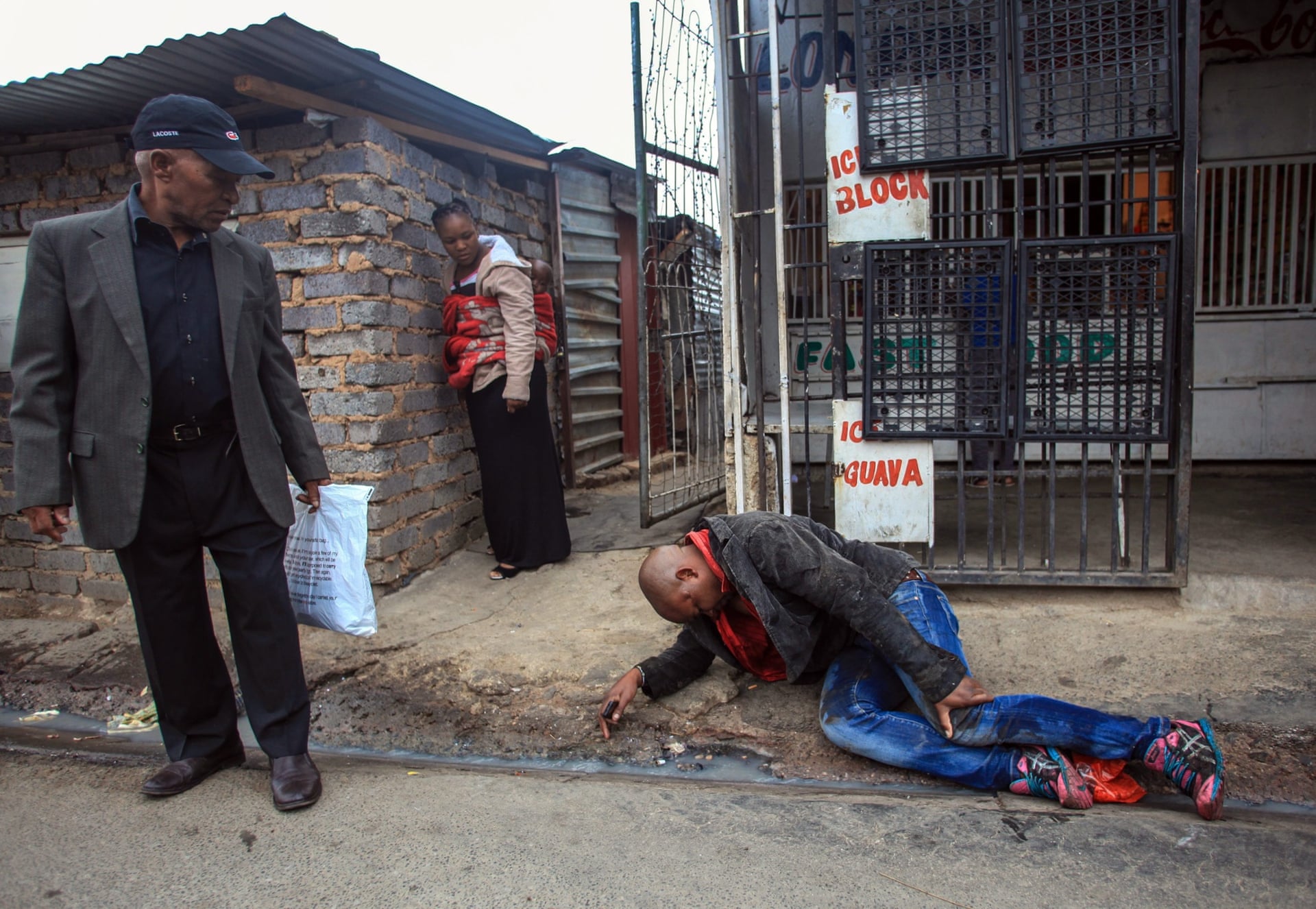
Johannesburg, South Africa. A Mozambican man lies in the street after he was reportedly stabbed by a mob in Alexandra township, Johannesburg, during fighting between locals and foreign nationals: photo by Kevin Sutherland/EPA via the Guardian, 18 April 2015
Frantz Fanon: The Pitfalls of National Consciousness: from The Wretched of the Earth (1961)
Viva la revolucion #FrantzFanon and the coming of a second Fanonian movement #Algeria: image via AfricaSpeaks4Africa @AfricaSpeaks4, 6 April 2015
We have said that the native bourgeoisie which comes to power uses
its class aggressiveness to corner the positions formerly kept for
foreigners. On the morrow of independence, in fact, it violently attacks
colonial personalities: barristers, traders, landed proprietors,
doctors and higher civil servants. It will fight to the bitter end
against these people ‘who insult our dignity as a nation’. It waves
aloft the notion of the nationalization and Aricanization of the ruling
classes. The fact is that such action will become more and more tinged
by racism, until the bourgeoisie bluntly puts the problem to the
government by saying ‘We must have these posts’. They will not stop
their snarling until they have taken over every one.
The working class of the towns, the masses of unemployed, the small artisans and craftsmen for their part line up behind this nationalist attitude; but in all justice let it be said, they only follow in the steps of their bourgeoisie. If the national bourgeoisie goes into competition with the Europeans, the artisans and craftsmen start a fight against non-national Africans. In the Ivory Coast, the anti-Dahoman and anti-Voltaic troubles are in fact racial riots. The Dahoman and Voltaic peoples, who control the greater part of the petty trade, are, once independence is declared, the object of hostile manifestations on the part of the people of the Ivory Coast. From nationalism we have passed to ultra-nationalism, to chauvinism, and finally to racism. These foreigners are called on to leave; their shops are burned, their street stalls are wrecked, and in fact the government of the Ivory Coast commands them to go, thus giving their nationals satisfaction. In Senegal it is the anti-Sudanese demonstrations which called forth these words from Mr Mamadou Dia:
“The truth is that the Senegalese people have only adopted the Mali mystique through attachment to its leaders. Their adhesion to the Mali has no other significance than that of a fresh act of faith in the political policy of the latter. The Senegalese territory was no less real, in fact it was all the more so in that the presence of the Sudanese in Dakar [was] too obviously manifested for it to be forgotten. It is this fact which explains that, far from being regretted, the break-up of the Federation has been greeted with relief by the mass of the people and nowhere was a hand raised to maintain it.” (Mamadou Dia: Nations africaines et solidarité mondial, Presses Universitaires de France, p. 140.)
While certain sections of the Senegalese people jump at the chance which is afforded them by their own leaders to get rid of the Sudanese, who hamper them in commercial matters or in administrative posts, the Congolese, who stood by hardly daring to believe in the mass exodus of the Belgians, decide to bring pressure to bear on the Senegalese who have settled in Leopoldville and Elizabethville and to get them to leave.
As we see it, the mechanism is identical in the two sets of circumstances. If the Europeans get in the way of the intellectuals and business bourgeoisie of the young nation, for the mass of the people in the towns competition is represented principally by Africans of another nation. On the Ivory Coast these competitors are the Dahomans; in Ghana they are the Nigerians; in Senegal, they are the Sudanese.
When the bourgeoisie’s demands for a ruling class made up exclusively of Negroes or Arabs do not spring from an authentic movement of nationalization but merely correspond to an anxiety to place in the bourgeoisie’s hands the power held hitherto by the foreigner, the masses on their level present the same demands, confining, however, the notion of Negro or Arab within certain territorial limits. Between resounding assertions of the unity of the continent and this behaviour of the masses which has its inspiration in their leaders, many different attitudes may be traced. We observe a permanent see-saw between African unity, which fades quicker and quicker into the mists of oblivion, and a heart-breaking return to chauvinism in its most bitter and detestable form.
“On the Senegalese side, the leaders who have been the main theoreticians of African unity, and who several times over have sacrificed their local political organizations and their personal positions to this idea, are, though in all good faith, undeniably responsible. Their mistake -- our mistake -- has been, under pretext of fighting ‘Balkanization’, not to have taken into consideration the pre-colonial fact of territorialism. Our mistake has been not to have paid enough attention in our analyses to this phenomenon, which is the fruit of colonialism if you like, but also a sociological fact which no theory of unity, be it ever so laudable or attractive, can abolish. We have allowed ourselves to be seduced by a mirage; that of the structure which is the most pleasing to our minds; and, mistaking our ideal for reality, we have believed it enough to condemn territorialism, and its natural sequel, micro-nationalism, for us to get the better of them, and to assure the success of our chimerical undertaking”. (Mamadou Dia, op. cit.)
From the chauvinism of the Senegalese to the tribalism of the Yolofs is not a big step. For, in fact, everywhere that the national bourgeoisie has failed to break through to the people as a whole, to enlighten them, and to consider all problems in the first place with regard to them -- a failure due to the bourgeoisie’s attitude of mistrust and to the haziness of its political tenets -- everywhere where that national bourgeoisie has shown itself incapable of extending its vision of the world sufficiently, we observe a falling back towards old tribal attitudes, and, furious and sick at heart, we perceive that race feeling in its most exacerbated form is triumphing. Since the sole motto of the bourgeoisie is ‘Replace the foreigner’, and because it hastens in every walk of life to secure justice for itself and to take over the posts that the foreigner has vacated, the ‘small people’ of the nation -- taxi-drivers, cake-sellers and shoeblacks -- will be equally quick to insist that the Dahomans go home to their own country, or will even go further and demand that the Foulbis and the Peuhls return to their jungle or their mountains.
It is from this view-point that we must interpret the fact that in young, independent countries, here and there federalism triumphs. We know that colonial domination has marked certain regions out for privilege. The colony’s economy is not integrated into that of the nation as a whole. It is still organized in order to complete the economy of the different mother countries.
Colonialism hardly ever exploits the whole of a country. It contents itself with bringing to light the natural resources, which it extracts, and exports to meet the needs of the mother country’s industries, thereby allowing certain sectors of the colony to become relatively rich. But the rest of the colony follows its path of under-development and poverty, or at all events sinks into it more deeply.
Immediately after independence, the nationals who live in the more prosperous regions realize their good luck, and show a primary and profound reaction in refusing to feed the other nationals. The districts which are rich in ground-nuts, in cocoa and in diamonds come to the forefront, and dominate the empty panorama which the rest of the nation presents. The nationals of these rich regions look upon the others with hatred, and find in them envy and covetousness, and homicidal impulses. Old rivalries which were there before colonialism, old inter-racial hatred come to the surface. The Balubas refuse to feed the Luluas; Katanga forms itself into a state, and Albert Kalondji gets himself crowned king of South Kasai.
African unity, that vague formula, yet one to which the men and women of Africa were passionately attached, and whose operative value served to bring immense pressure to bear on colonialism, African unity takes off the mask, and crumbles into regionalism inside the hollow shell of nationality itself. The national bourgeoisie, since it is strung up to defend its immediate interests, and sees no farther than the end of its nose, reveals itself incapable of simply bringing national unity into being, or of building up the nation on a stable and productive basis. The national front which has forced colonialism to withdraw cracks up, and wastes the victory it has gained.
“Each generation must, out of relative obscurity, discover its mission, fulfill it, or betray it.” #FrantzFanon: image via QM Pan-African Soc @QMPan, 16 February 2015
*
The political party in many parts of Africa which are today
independent is puffed up in a most dangerous way. In the presence of a
member of the party, the people are silent, behave like a flock of sheep
and publish panegyrics in praise of the government of the leader. But
in the street when evening comes, away from the village, in, the cafes
or by the river, the bitter disappointment of the people, their despair
but also their unceasing anger makes itself heard. The party, instead of
welcoming the expression of popular discontentment, instead of taking
for its fundamental purpose the free flow of ideas from the people up to
the government, forms a screen, and forbids such ideas. The party
leaders behave like common sergeant-majors, frequently reminding the
people of the need for ‘silence in the ranks’. This party which used to
call itself the servant of the people, which used to claim that it
worked for the full expression of the people’s will, as soon as the
colonial power puts the country into its control hastens to send the
people back to their caves. As far as national unity is concerned the
party will also make many mistakes, as for example when the so-called
national party behaves as a party based on ethnical differences. It
becomes, in fact, the tribe which makes itself into a party. This party
which of its own will proclaims that it is a national party, and which
claims to speak in the name of the totality of the people, secretly,
sometimes even openly organizes an authentic ethnical dictatorship. We
no longer see the rise of a bourgeois dictatorship, but a tribal
dictatorship. The ministers, the members of the cabinet, the ambassadors
and local commissioners are chosen from the same ethnological group as
the leader, sometimes directly from his own family. Such regimes of the
family sort seem to go back to the old laws of inbreeding, and not anger
but shame is felt when we are faced with such stupidity, such an
imposture, such intellectual and spiritual poverty. These heads of the
government are the true traitors in Africa, for they sell their country
to the most terrifying of all its enemies: stupidity. This tribalizing
of the central authority, it is certain, encourages regionalist ideas
and separatism. All the decentralizing tendencies spring up again and
triumph, and the nation falls to pieces, broken in bits. The leader, who
once used to call for ‘African unity’ and who thought of his own little
family wakes up one day to find himself saddled with five tribes, who
also want to have their own ambassadors and ministers; and irresponsible
as ever, still unaware and still despicable, he denounces their
‘treason’.
We have more than once drawn attention to the baleful influence frequently wielded by the leader. This is due to the fact that the party in certain districts is organized like a gang, with the toughest person in it as its head. The ascendancy of such a leader and his power over others is often mentioned, and people have no hesitation in declaring, in a tone of slightly admiring complicity, that he strikes terror into his nearest collaborators. In order to avoid these many pitfalls an unceasing battle must be waged, a battle to prevent the party ever becoming a willing tool in the hands of a leader. ‘Leader': the word comes from the English verb ‘to lead’, but a frequent French translation is ‘to drive’.
The driver, the shepherd of the people no longer exists today. The people are no longer a herd; they do not need to be driven. If the leader drives me on, I want him to realize that at the same time I show him the way; the nation ought not to be something bossed by a Grand Panjandrum. We may understand the panic caused in governmental circles each time one of these leaders falls ill; they are obsessed by the question of who is to succeed him. What will happen to the country if the leader disappears? The ruling classes who have abdicated in favour of the leader, irresponsible, oblivious of everything and essentially preoccupied with the pleasures of their everyday life, their cocktail parties, their journeys paid for by government money, the profits they can make out of various schemes -- from time to time these people discover the spiritual waste land at the heart of the nation.
Frantz Fanon (1929-1961): from The Pitfalls of National Consciousness, in The Wretched of the Earth / Les damnés de la terre: François Maspéro éditeur, 1961; English translation Macgibbon and Kee, 1965
#FrantzFanon at #AfrikaTown #Oakland: image via Dave Id @David, 3 April 2015
“Of course killing people is wrong, but we still want them out of the country”
“Of course killing people is wrong, but we still want them out of the country” #Xenophobia: image via Azad Essa @azzadessa, 20 April 2015
”RT @Mr_Bata: The South African map of Africa. @zapiro at his best! #Xenophobia: image via Rachael Akidi @rakidi, 20 April 2015
Cartoon for today ...#ZuluKing goes all out to quell the flames of #xenophobia: image via SAcrimefighters @SAcrimefighters, 20 April 2015
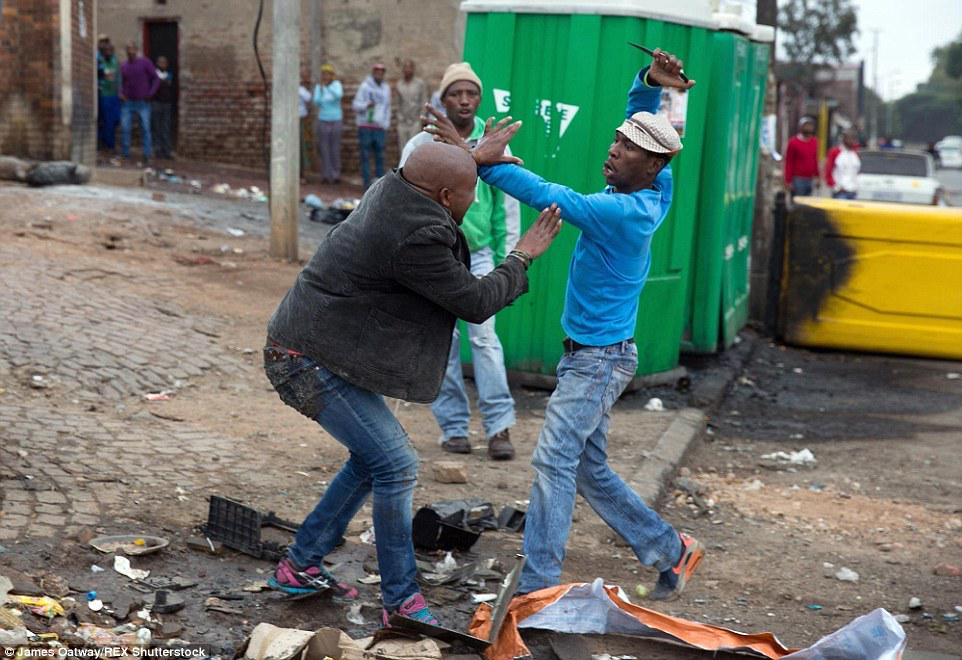
Emmanuel Sithole, the Mozambican victim who died after multiple stabs. #Xenophobia: image via Flavafm87dot7 @flavafm87dot7, 21 April 2015
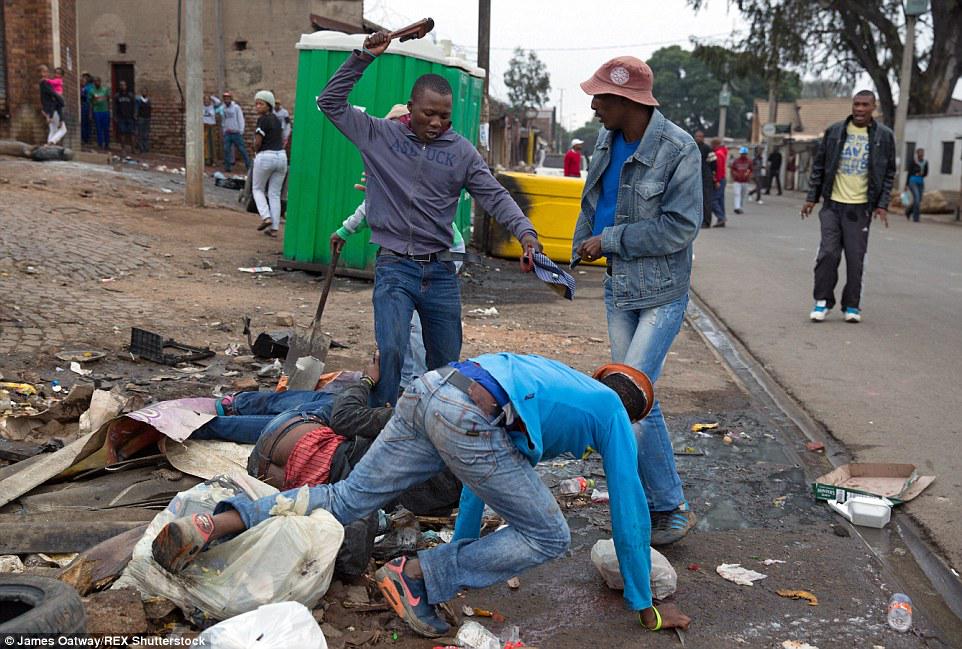
Emmanuel Sithole, the Mozambican victim who died after multiple stabs. #Xenophobia: image via Flavafm87dot7 @flavafm87dot7, 21 April 2015
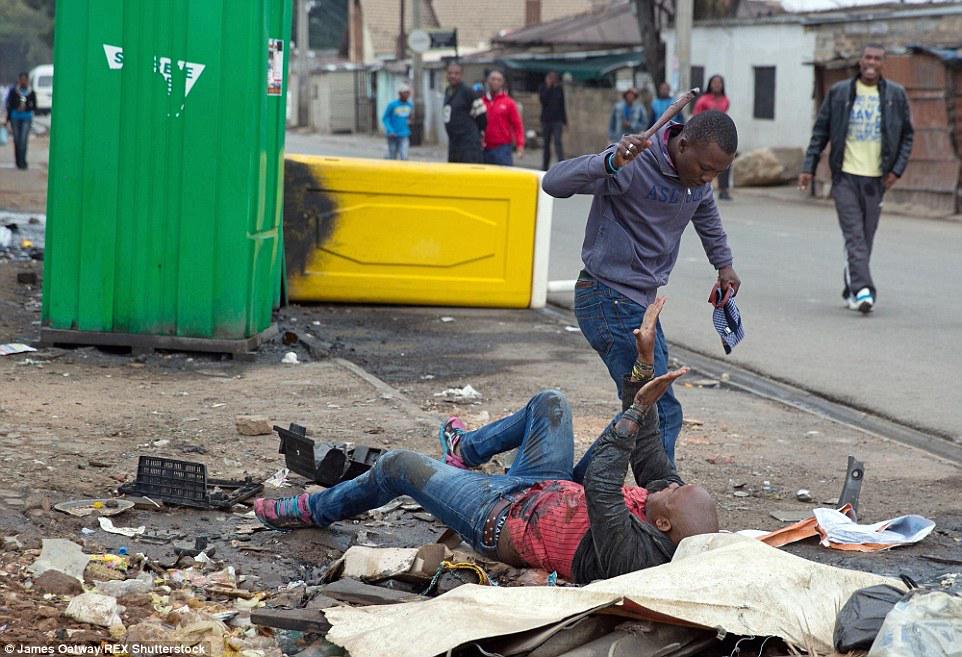
Emmanuel Sithole, the Mozambican victim who died after multiple stabs. #Xenophobia: image via Flavafm87dot7 @flavafm87dot7, 21 April 2015
Kill thy neighbour: Alex attack brings home SA's shame #xenophobia: image via Sunday TimesVerified account @SundayTimesZA, 19 April 2015
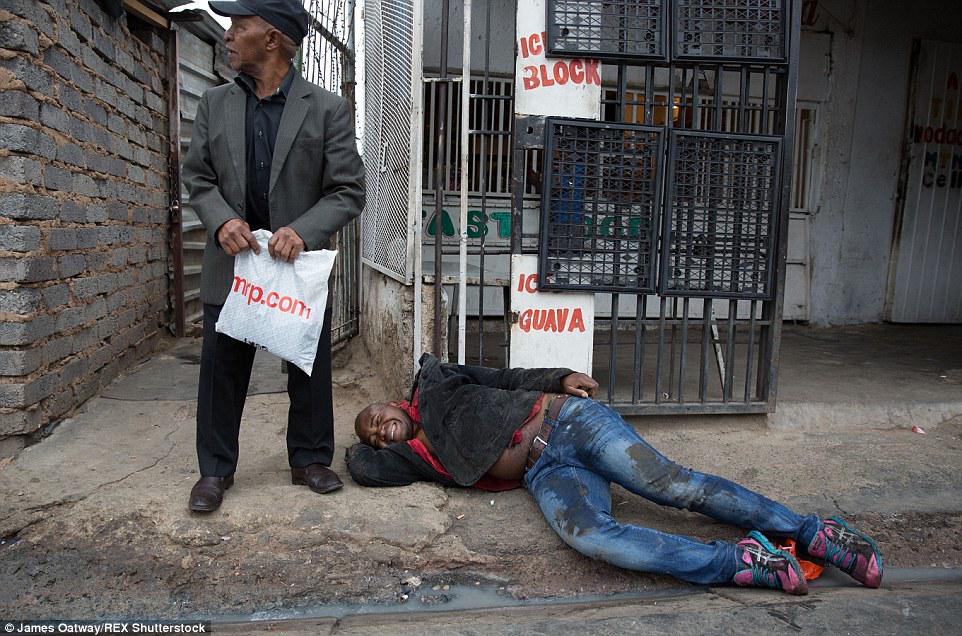
Emmanuel Sithole, the Mozambican victim who died after multiple stabs. #Xenophobia: image via Flavafm87dot7 @flavafm87dot7, 21 April 2015
Really?? "Uchez2: He should die" @ewnreporter: #Xenophobia A man grimaces in pain after being shot with a rubber [bullet]": image via Aduke @Foxy_Siren, 21 Aprll 2015
#Xenophobia: Over 1,500 Zimbabweans cross Beitbridge Border: image via Eyewitness News @ewnupdates, 20 April 2015 Sandton, South Africa
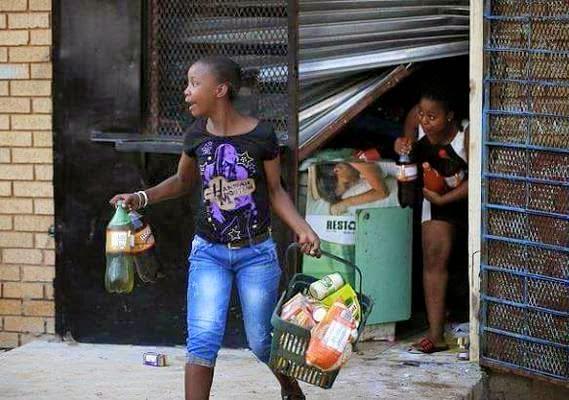
Until something is done. Some kids will grow up thinking it's their culture to rob foreign-owned shops.#Xenophobia: image via R U That Xenophobic? @MrBasabose, 18 April 2015
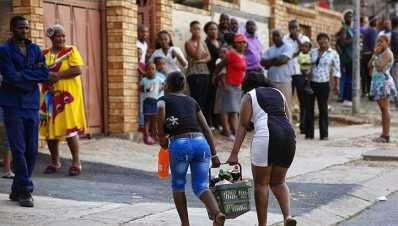
Until something is done. Some kids will grow up thinking it's their culture to rob foreign-owned shops.#Xenophobia: image via R U That Xenophobic? @MrBasabose, 18 April 2015
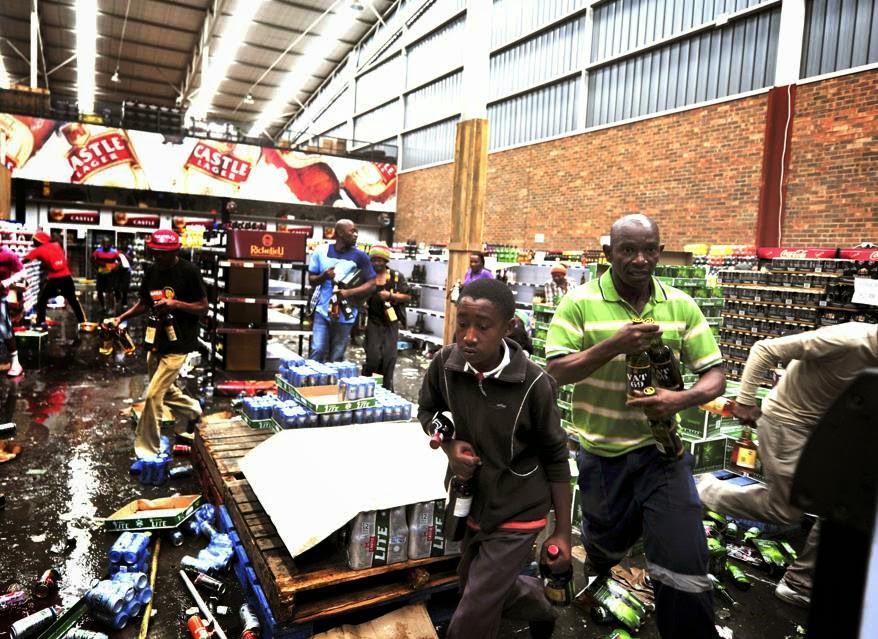
Until something is done. Some kids will grow up thinking it's their culture to rob foreign-owned shops.#Xenophobia: image via R U That Xenophobic? @MrBasabose, 18 April 2015
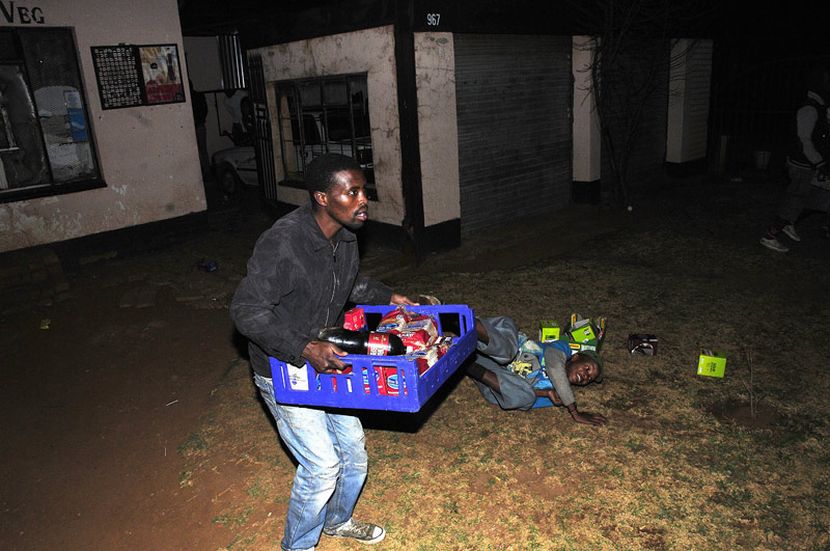
Until something is done. Some kids will grow up thinking it's their culture to rob foreign-owned shops.#Xenophobia: image via R U That Xenophobic? @MrBasabose, 18 April 2015
#SouthAfricaXenophobia Unbelievable !!!: image via Dr Nsangou Mouchili @DrNsangouMouchili, 15 April 2015

#Xenophobia in #SouthAfrica unbelievable: image via Michelle Demisevich @demisevich, 17 April 2015 Istanbul, Türkiye

#Xenophobia in #SouthAfrica unbelievable: image via Michelle Demisevich @demisevich, 17 April 2015 Istanbul, Türkiye

#Xenophobia in #SouthAfrica unbelievable: image via Michelle Demisevich @demisevich, 17 April 2015 Istanbul, Türkiye

#Xenophobia in #SouthAfrica unbelievable: image via Michelle Demisevich @demisevich, 17 April 2015 Istanbul, Türkiye
Tribal
#Zwelithini will 1 day be judged for this.. @SakinaKamwendo @Chriseldalewis @Debora_Patta @positivego @Noeleen3Talk: image via 25Apr_RuffAwards_EL @RumbuCyarumbu, 14 April 2015
ZuluKing #Zwelithini & Jacob #Zuma's son #EdwardZuma are responsible for fueling attacks on foreigners. #Xenophobia: image via Tinonenda Samukange @tinosank, 16 April 2015
Human Rights Commission wants King #Zwelithini to clarify comments on foreigners: image via Rand Daiily Mail @rdm_za, 17 April 2015
@263Chat @BBCAfrica @CNNInsideAfrica @TheSunNewspaper The man behind #xenophobicattacks in SA, Zulu king #Zwelithini: image via Chofamba Sithole @Chofamba, 17 April 2015
Foreigners must go home – King #Zwelithini: image via The Citizen News @TheCitizen_News, 25 March 2015

One man can change the nation... #Mandela...& One foolish man have killed that nation...#Zwelithini: image via SayNoToXenophobia @MtheGift, 15 April 2015


One man can change the nation... #Mandela...& One foolish man have killed that nation...#Zwelithini: image via SayNoToXenophobia @MtheGift, 15 April 2015
How much value does King #Zwelithini really add? | GREG ARD @Gregarde: image via Rand Dail Mail @rdmza, 15 April 2015
Atrocities of King Shaka will not be tolerated now! ~~>“@PILLAY_CGLM: #XenophobicSA #zwelithini: image via Shakamantic @ChiboliS, 19 April 2015
"They are hunting us like dogs"
#Zulu king denies triggering South #Africa attacks #xenophobicSA: image via Daily Monitor @Daily Monitor, 20 April 2015
Q:Is there no #Zulu on this ship to Europe A: possibly more than one So why kill your other foreigners?: image via Patrick Boateng, M.D. @pabttt 21 April 2015
#Zulu warriors out in hunt for African immigrants!: image via Abdirizak Adan @Abdirik, 16 April 2015
Shame #Shame #XenophobicSA #Africa: image via @HumansInAfrica @HumansInAfrica, 11 April 2015
A man's burnt alive in #SA #Xenophobic SA #shame #humanity forgotten: image via @HumansInAfrica @HumansInAfrica, 11 April 2015
"@HumansInAfrica: A man's burnt alive in #SA #Xenophobic SA #shame #humanity forgotten'" Stupid terrorists #Zulu: image via PR-esident @OkoechLS, 11 April 2015
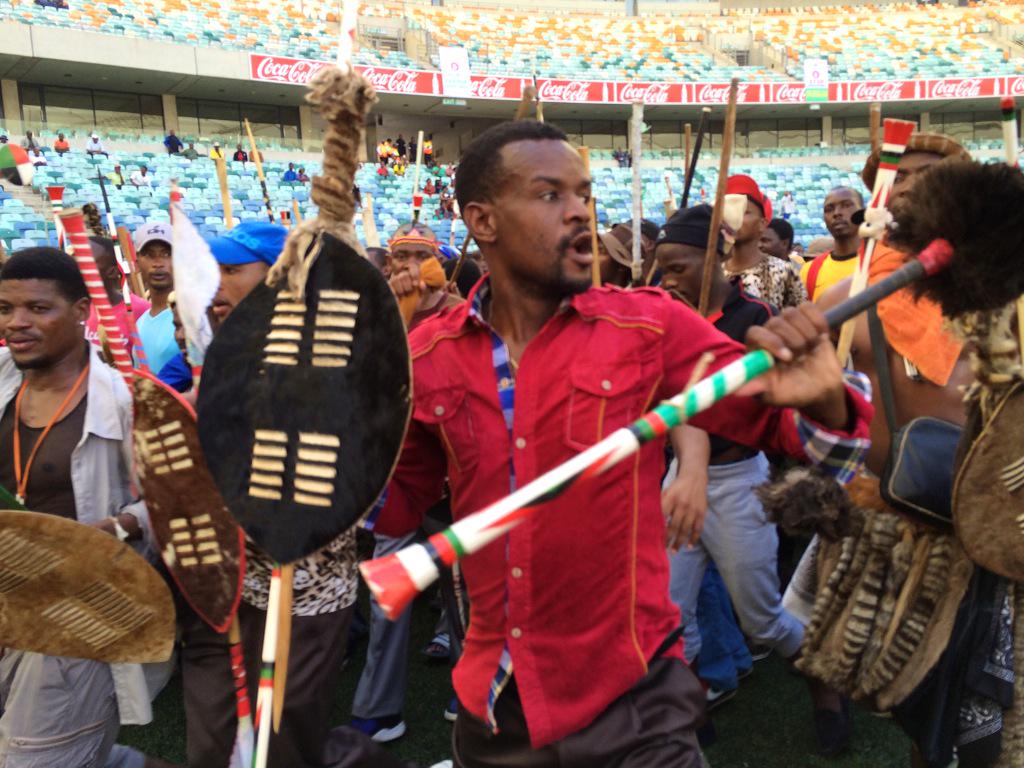
#Xenophobia At the stadium in Durban where the King of the Zulus is expected to speak shortly: image via Karen Allen @BBCKarenAllen, 20 April 2015
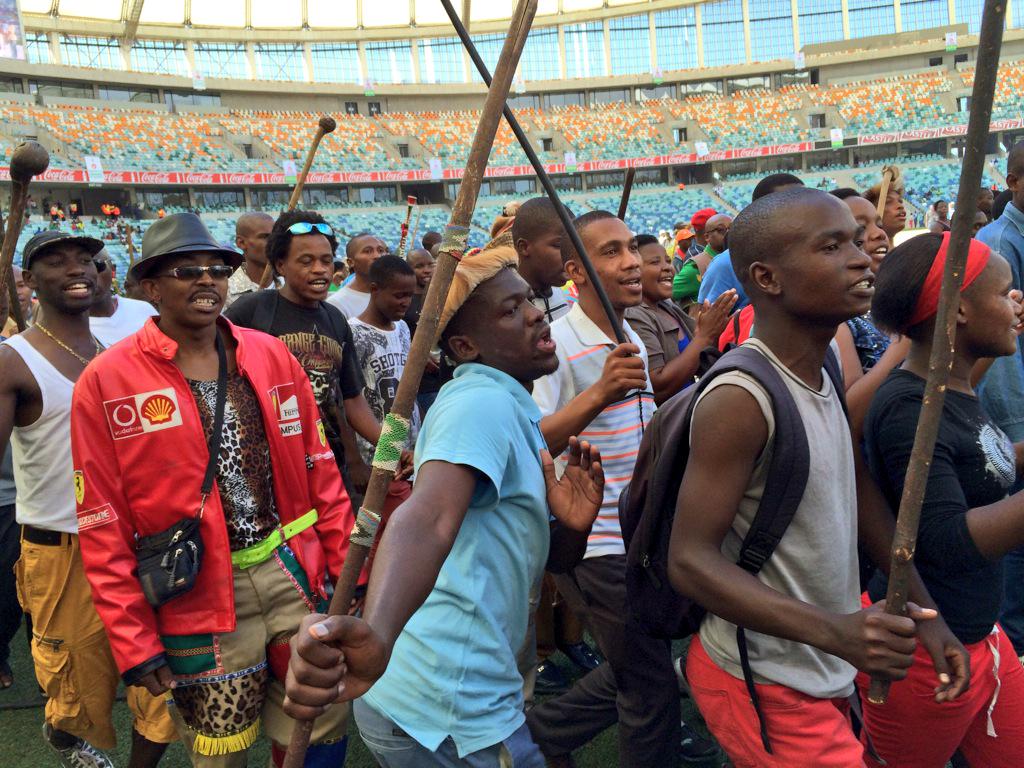
#Xenophobia At the stadium in Durban where the King of the Zulus is expected to speak shortly: image via Karen Allen @BBCKarenAllen, 20 April 2015
Foreigners tell of being ‘hunted like dogs’ in S.Africa #Xenophobia: image via Capita lFM Kenya @CapitalFM_kenya, 21 April 2015
So cruel #barbaric #NoToXenophobia #No2Xenophobia #ewn: image via Lenice Pretorius @LeniPrett, 15 April 2015
#southafricaxenophobia: image via Blackeve24 @sweetblackrose, 18 April 2015
Images coming out of #SouthAfricaXenophobia are heartwrenching. I feel like we are not far behind.#Spiritual: image via Chef Jennifer Zavala @foxyladychef, 16 April 2015
"...our brothers are being butchered in South
Africa..."
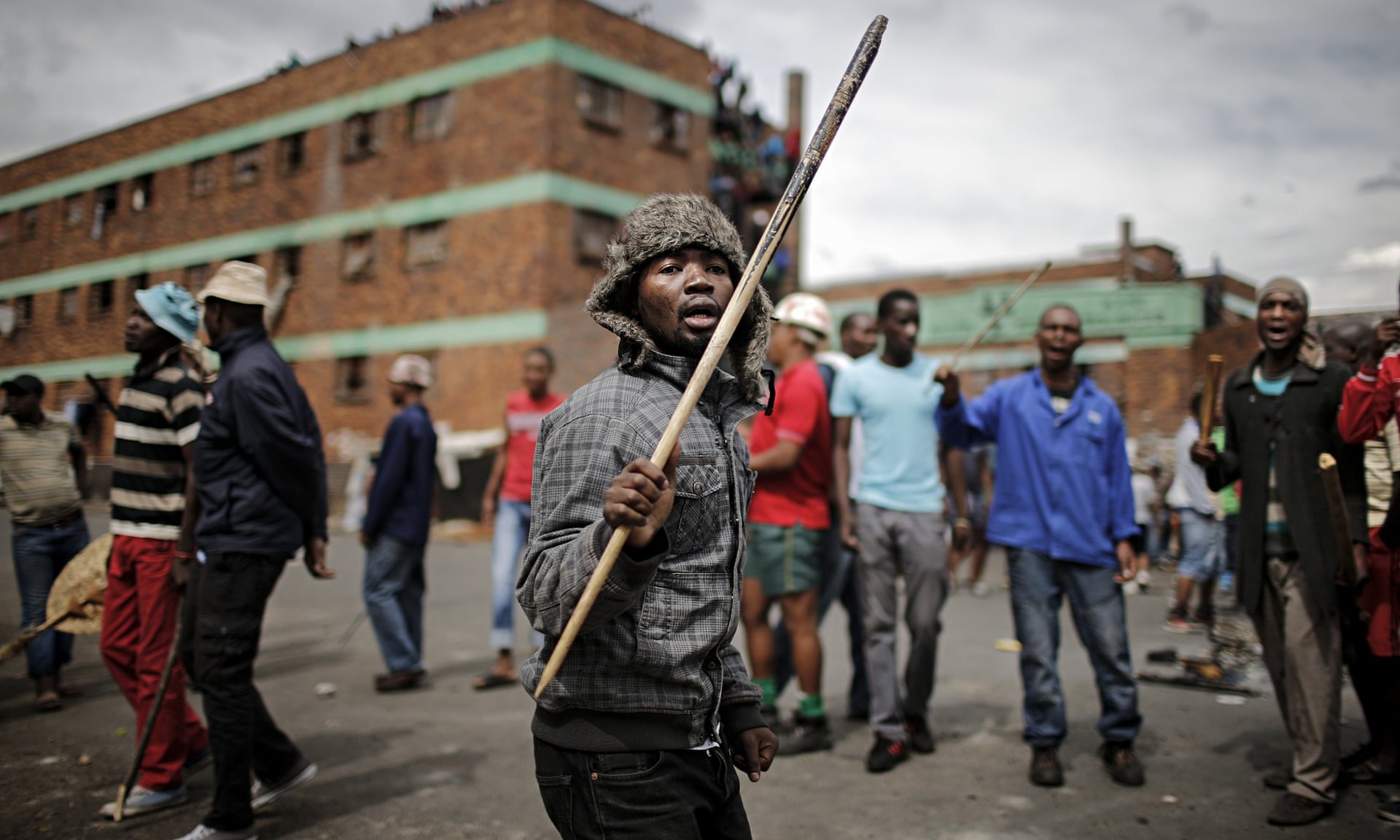
A demonstration against migrant workers outside a hostel in Johannesburg: photo by Marco Longari/AFP via The Observer, 19 April 2015
South Africa faces backlash over xenophobic attacks on migrant workers: Protests grow across continent with cars stoned, clashes outside embassies and companies threatened with closure: David Smith in Johannesburg for The Observer, 19 April 2015
South
Africa is facing a backlash from the rest of the continent over the
targeting of immigrants in a wave of xenophobic violence.
South African vehicles were pelted with stones in Mozambique
on Friday and South African companies are reportedly being threatened
with closure in Nigeria. Protests have been held at various South
African embassies across the continent, and several South African
musicians have been forced to cancel concerts abroad.
The tit-for-tat measures follow a surge of attacks on foreigners in Durban, Johannesburg and other parts of South Africa,
in which at least six people have been killed, more than 5,000
displaced, and shops looted and razed. Most of those affected “are
refugees and asylum seekers who were forced to leave their countries due
to war and persecution”, the UN high commissioner for refugees said.
President
Jacob Zuma on Saturday cancelled a state visit to Indonesia
to deal with the crisis and visit one of the camps in the Durban suburb
of Chatsworth, where more than a thousand foreign nationals are
sleeping in tents and relying on volunteers for food. Many were boarding
buses to return to Malawi, Zimbabwe, and other home countries.
Zuma told a crowd that those who wanted to go home would be helped
but his message to those remaining was: “We are firstly going to stop
violence and then allow them to stay here in peace.
“It is not every South African who says go away, not at all. It is a
very small number who say so. We don’t want the countries in the region
where the citizens are going to look at each other in a hostile manner.
We want to live as sisters and brothers.”
The rest of Africa is increasingly questioning this assertion,
however. There are some who already regard South Africa, which has a
unique history and the continent’s most developed economy, with envy or suspicion.
The
xenophobic mayhem has sharpened a sense of “us and them”, causing
bitterness among nations that hosted thousands of South African exiles
during the struggle against apartheid.
In Mozambique last week, a group of about 200 protesters blockaded
the southern Lebombo border and stoned South African vehicles. Moamba
district police commander Alfonso Rocco told the Agence France-Presse
news agency: “Demonstrators blocked the road for half an hour, refusing
to allow cars with South African registration plates to pass.”
Sasol,
an energy and chemical giant, evacuated 340 South Africans from
Mozambique over fears for their safety. In Zambia, a privately owned
radio station has stopped playing South African music in protest.
Businesses from South Africa could face closure in Nigeria
unless it takes swift action to stop the violence, according to the
eNews Channel Africa. An official with Nigeria’s newly elected All
Progressives Congress party handed a memorandum to the South African
embassy threatening to shut down leading companies, it said.
In the Zimbabwean capital Harare, there were clashes with police as
more than a hundred people marched outside the South African embassy
with a petition that said: “We, the people of Zimbabwe standing in
solidarity with our brethren in Africa, strongly condemn and denounce
the cruel, senseless and gruesome xenophobic slaughter of foreign
nationals and the looting of their properties in South Africa.” Gilbert
Mutubuki, president of the Zimbabwe National Students’ Union, was quoted
as saying: “Right now we have South African businesses such as Pick n
Pay operating freely here, but our brothers are being butchered in South
Africa … It’s high time we should do the same to all South African
businesses here until they stop all this nonsense.”
The Economic Community of West African States has also condemned the
“barbaric, criminal and xenophobic murder of innocent foreigners”.
The South African government hastily convened a meeting of Africa
ambassadors and high commissioners last week in an attempt to provide
reassurance that it was taking their concerns seriously. But Jeff
Radebe, minister in the presidency in South Africa, conceded that the
country’s companies that operate in the rest of Africa could be at risk
of reprisals. “The impact of these attacks has far-reaching implications
for our economic and social relations with the continent and the
world,” he said.
“South African companies who are running successful businesses on the
continent who help to contribute to our revenue and sustaining our
economy may suffer the same fate.
“Recently, South African artists who were to showcase their craft
outside the borders of our country, such as BigNuz in Zimbabwe, Kelly
Khumalo and Cassper Nyovest in London, have had their concerts cancelled
as a result of these attacks.”
Parts of Johannesburg remained tense on Saturday after police
detained more than 30 people following overnight violence in which small
groups attacked shops in several areas around the commercial capital.
Police also used rubber bullets to disperse the looters in Alexandra
township.
The latest outbreak of anti-immigrant violence has been widely blamed
on a speech last month by King Goodwill Zwelithini, traditional leader
of the Zulu ethnic group, in which he linked foreigners to crime and
said they must “take their bags and go”. The king has since claimed his
words were misconstrued.
Estimates of the number of foreign nationals in South Africa vary
from two to five million, among a population of more than 51 million.
Scapegoating
amid a climate of high unemployment and inequality is nothing new. In
2008, 62 people were killed in xenophobic violence across Johannesburg's
townships. In January this year, six people died as looters rampaged
through Soweto township.
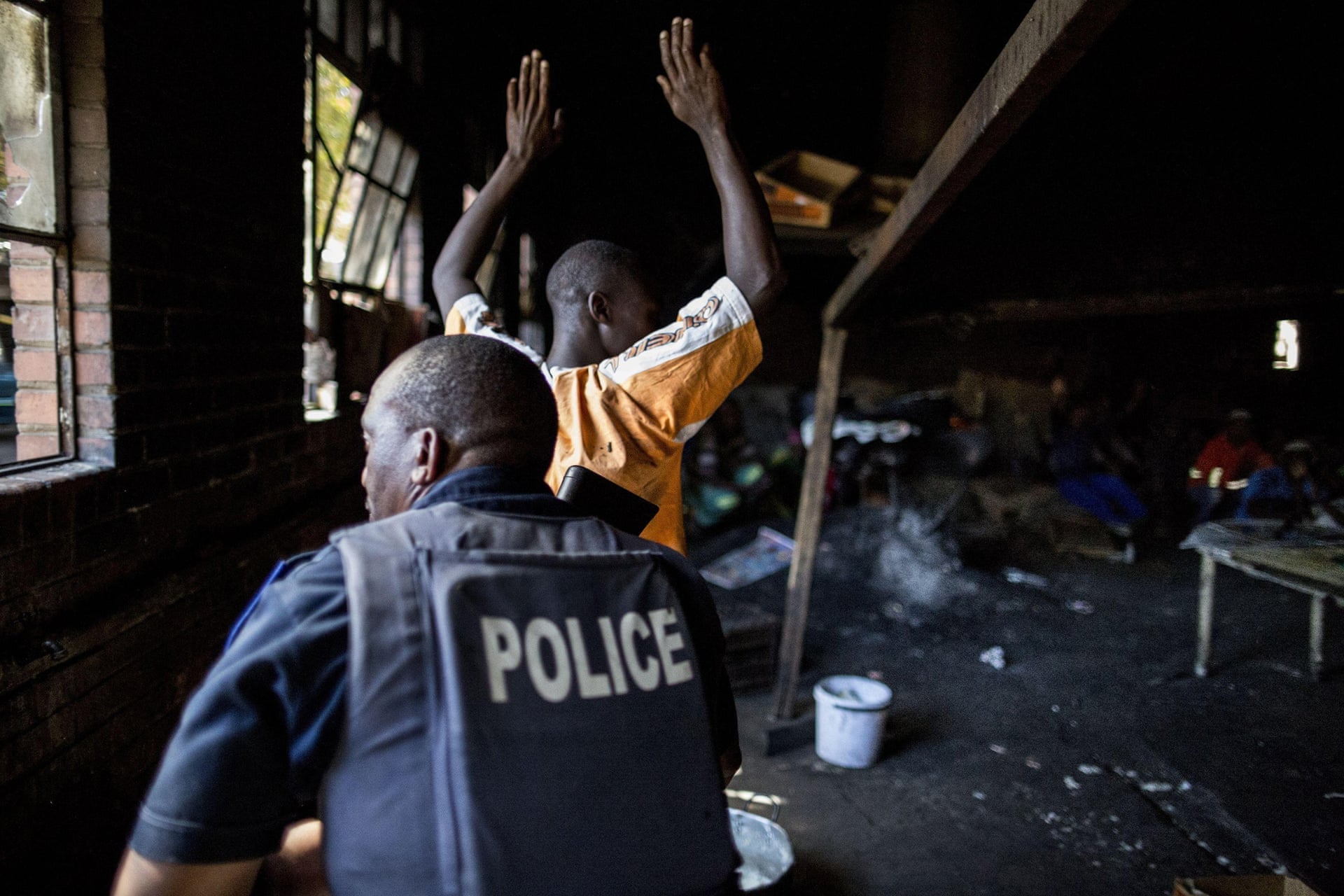
A man holds up his hands as a South African riot officer raids the kitchen of a hostel in Benoni. Local residents are suspected of having acted against foreign-owned shops in the area, throwing stones at the trucks bringing in stock and forcing them to shut down. South African president Jacob Zuma appealed for calm as an eruption of xenophobic violence spread to Johannesburg, raising fears that the country’s dire economic troubles could spark widespread unrest: photo by Marco Longari/AFP via the Guardian, 18 April 2015
South
Africa police fire rubber bullets and teargas on anti-immigrant
protest: Police disperse 200 protesters in Johannesburg after at least
four
people killed in xenophobic violence that started two weeks ago in
Durban: Reuters in Johannesburg via The Guardian, 15 April 2015
South African police have fired rubber bullets and teargas to disperse a crowd of anti-immigrant protesters in eastern Johannesburg, a witness has said.
About 200 protesters, shouting that they wanted immigrants to leave, had pelted passing vehicles and police with rocks on Thursday, triggering the show of force.
At least four people have been killed in a wave of anti-immigrant violence that started two weeks ago in Durban.
Johannesburg was the centre of xenophobic attacks in 2008 that killed more than 60 people.
The South African president, Jacob Zuma, has called for the killings to stop.
“What is happening in our country is not acceptable,” he told state broadcaster SABC in remarks broadcast on Wednesday night.
The authorities have erected safe camps in Durban, a key port, for fleeing immigrants -– including Ethiopians, Nigerians, Malawians and Pakistanis –- whose shops were looted and set of fire.
South Africa is home to an estimated 5 million immigrants. High unemployment, widespread poverty and massive income disparities add to environment in which outbreaks of anti-immigrant violence are common.
The official jobless rate is 25%, but economists say in reality it is much higher.

Row of closed shops in Johannesburg’s central business district: photo by Marco Longari/AFP via The Guardian, 15 April 2015
Johannesburg's foreign shop owners close up early amid threats of violence:
Anonymous texts and emails have warned of xenophobic attacks in South
Africa’s commercial capital in wake of unrest in Durban: David Smith in
Johannesburg for The Guardian, 15 April 2015 (updated 16 April 2015)
In the central business district of South Africa’s commercial capital
-– where looters ransacked foreign-owned shops earlier this year -– a
text message warned, “Zulu people are coming to town ... to kill every
foreigner on the road”, Reuters reported.
It
comes in the wake of recent unrest in the coastal city of Durban,
where two foreigners and three South Africans have been killed. The dead
included a 14-year-old boy who was allegedly shot during looting on
Monday
night. Thousands of immigrants have taken refuge in safe camps.
In Johannesburg’s normally bustling Jeppe Street on Wednesday, many
stores were shuttered amid a febrile atmosphere. Michael Ene, 34, from
Ghana, said he had closed his wig shop because of the threats. He said:
“There’s no violence but people are scared. There are rumours people are
coming but we see nobody. We are just vigilant.”
By late morning, Joyce Tankau, 30, from Cameroon, was cautiously
reopening a shop selling furniture, washing machines and other household
products. She explained: “In the morning they said people were going to
attack the foreigners so you must close your shops. Nothing happened so
I just reopened. I don’t know why this is happening now. The police
don’t do anything.”
A South African shop owner, who gave his name only as Muhammad, 27,
kept all but one of his shutters down. He said: “There is a big risk.
The whole street is closed and most of the shops are owned by
foreigners. Everybody is worried for their own safety. The government
should deploy the army; this morning I’ve only seen one police car drive
by.”
South African news websites published a video from Johannesburg
showing a taxi driver attacking an Ethiopian man who lay in the middle
of a street before another man intervened.
But the eNews Channel Africa reporter Nickolaus Bauer said he has
spoken to witnesses and “it was nothing to with xenophobia; it was a
road rage incident”.
Bauer
also tweeted: “Journalists need to be extra vigilant then it comes to
#Xenophobia. Don’t be the one who cries wolf and ignites violence.”
Tensions remain high in and around Durban, where angry mobs attacked foreign-owned shops
and foreign nationals took up arms to fight back on Tuesday. South
Africa’s Times newspaper reported that the violence spread to Verulam‚
to the north‚ later that night when five foreigners were stabbed and
assaulted, and there were further incidents in Premaritzburg.
More than 800 police officers have been deployed to the area. Colonel
Jay Naicker, a spokesman, said 74 arrests have been made since the
trouble began in late March. He said: “Spreading false information on
the number of deaths and attacks, the different areas that are being
attacked, and hate speech aimed at foreign nationals not only causes
undue panic in communities but also has the potential to fuel the
violence.”
South
Africa, which has a population of about 50 million people, is home to
an estimated five million immigrants. In 2008, xenophobic violence broke
out around Johannesburg townships, killing 62 people.
The latest violence has been condemned by the governing African
National Congress and opposition parties. Nelson Mandela’s grandson,
Mandla Mandela, a traditional council chief, said: “We hang our heads in
shame as we recall how Madiba [Mandela’s clan name] visited these
African states after his release from incarceration acknowledging our
burden of debt towards them.
“Now we repay them in the most vile manner by attacking their sons
and daughters, threatening their lives, robbing them of their
hard-earned livelihoods, looting, ransacking and burning their
businesses. This all on our home soil that should be a place of refuge,
safety, hope and dignity for all.”
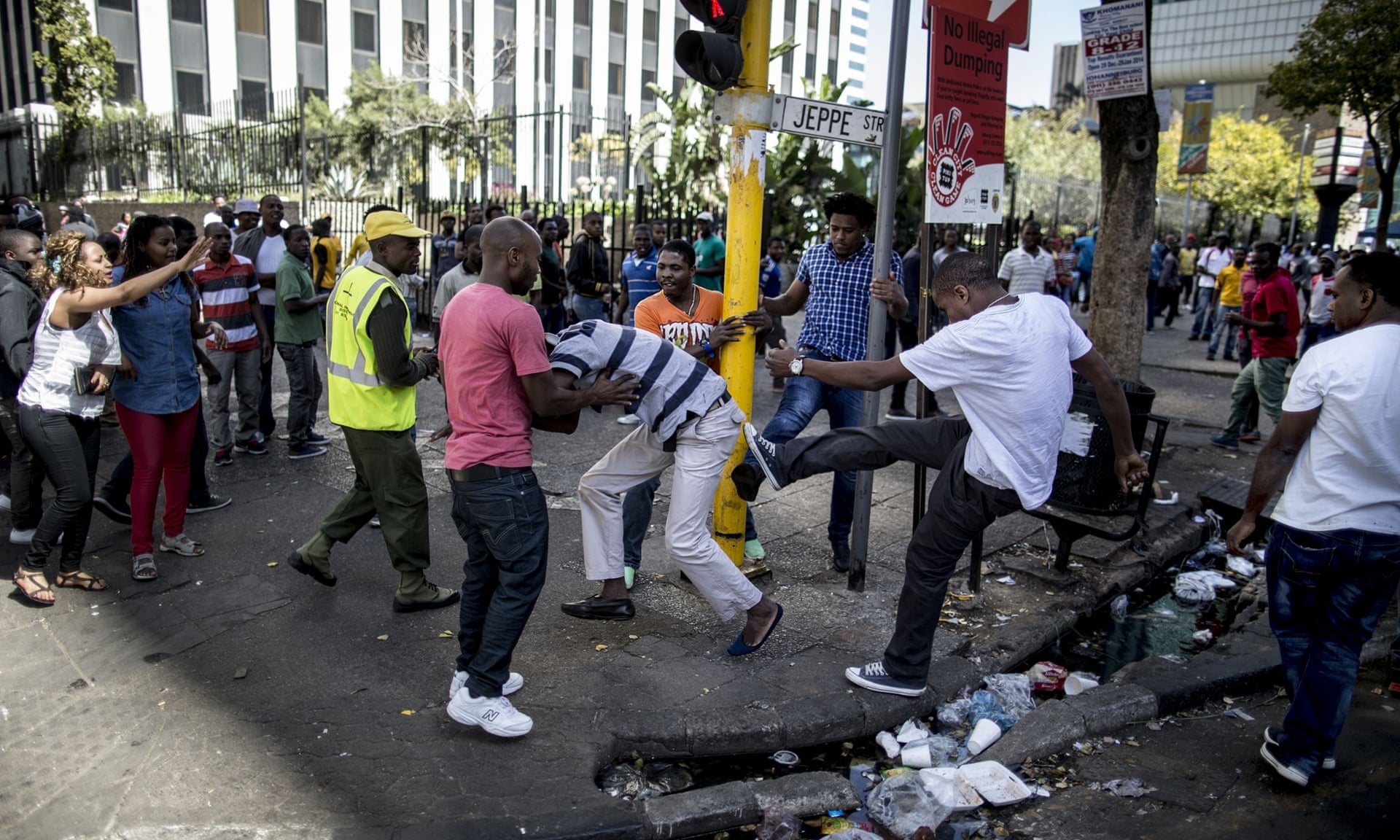
A taxi driver is pushed around during a wave of attacks on foreign nationals in Johannesburg on Wednesday: photo by Marco Longari/AFP via The Guardian, 16 April 2015
Xenophobic violence in South Africa leaves at least five dead: Hundreds forced to flee their homes amid unrest that has killed two foreigners and three South Africans, including a 14-year-old boy: Associated Press in Johannesburg via The Guardian, 14 April 2015 (updated 17 April 2015
At least five people have been killed and hundreds forced to flee
their homes in one of South Africa’s worst outbreaks of xenophobic
violence in years, authorities said on Tuesday.
“Police are deployed and in high alert in most of the areas where
there are foreign nationals,” Naicker said in a statement emailed to the
Associated Press.
Despite
the increased police presence, authorities are hard-pressed to stop
unrest that recalls similar violence in South Africa in which about 60
people died.
In January this year, four people died during a week of looting of
foreign-owned shops and other violence in Soweto and other areas of
Johannesburg.
Some South Africans have accused immigrants of taking jobs and
opportunities away from them. The latest violence followed reported
comments by Zulu King Goodwill Zwelithini, an influential figure among
the Zulu ethnic group, that foreigners should “pack their bags” and
leave. The king has since appealed for an end to the unrest.
The southern African nation of Malawi plans to repatriate at least 400 of its citizens following the attacks in South Africa, said Kondwani Nankhumwa, Malawi’s information minister.
Malawi is currently in discussions with South Africa to arrange temporary travel papers for stranded Malawians because most lost their passports in the chaos, Nankhumwa said.
“Most of them fled with literally nothing to safe camps,” the
minister said. “The numbers will swell since some Malawians are in
hiding.”
South Africa president Jacob Zuma condemned the violence and assigned several Cabinet ministers to work on the problem with officials in KwaZulu-Natal province, which includes Durban.
The government is addressing South African citizens’ “complaints about illegal and undocumented migrants, the takeover of local shops and other businesses by foreign nationals as well as perceptions that foreign nationals perpetrate crime,” Zuma’s office said in a statement.
It quoted the president as saying that many foreign nationals are living legally in South Africa and are contributing to economic development.
On a visit to South Africa last week, Zimbabwean president Robert Mugabe thanked South Africa for hosting many Zimbabweans and said Zimbabwe would work with South Africa to improve border security. It is estimated that as many as 3 million Zimbabweans are living in South Africa, many as illegal immigrants.
The violence against immigrants is “an expression of a terrible failure of memory by South Africans” who endured racial intolerance under apartheid, two South African foundations said. The foundations are named after anti-apartheid leader Nelson Mandela, who died in 2013, and Ahmed Kathrada, another campaigner against the white racist rule that ended in 1994.
In a statement, the foundations welcomed efforts by Zuma and other senior leaders to stop the unrest, but said: “For too long, South Africans in leadership positions have either ignored the crisis or stoked the fires of hatred."
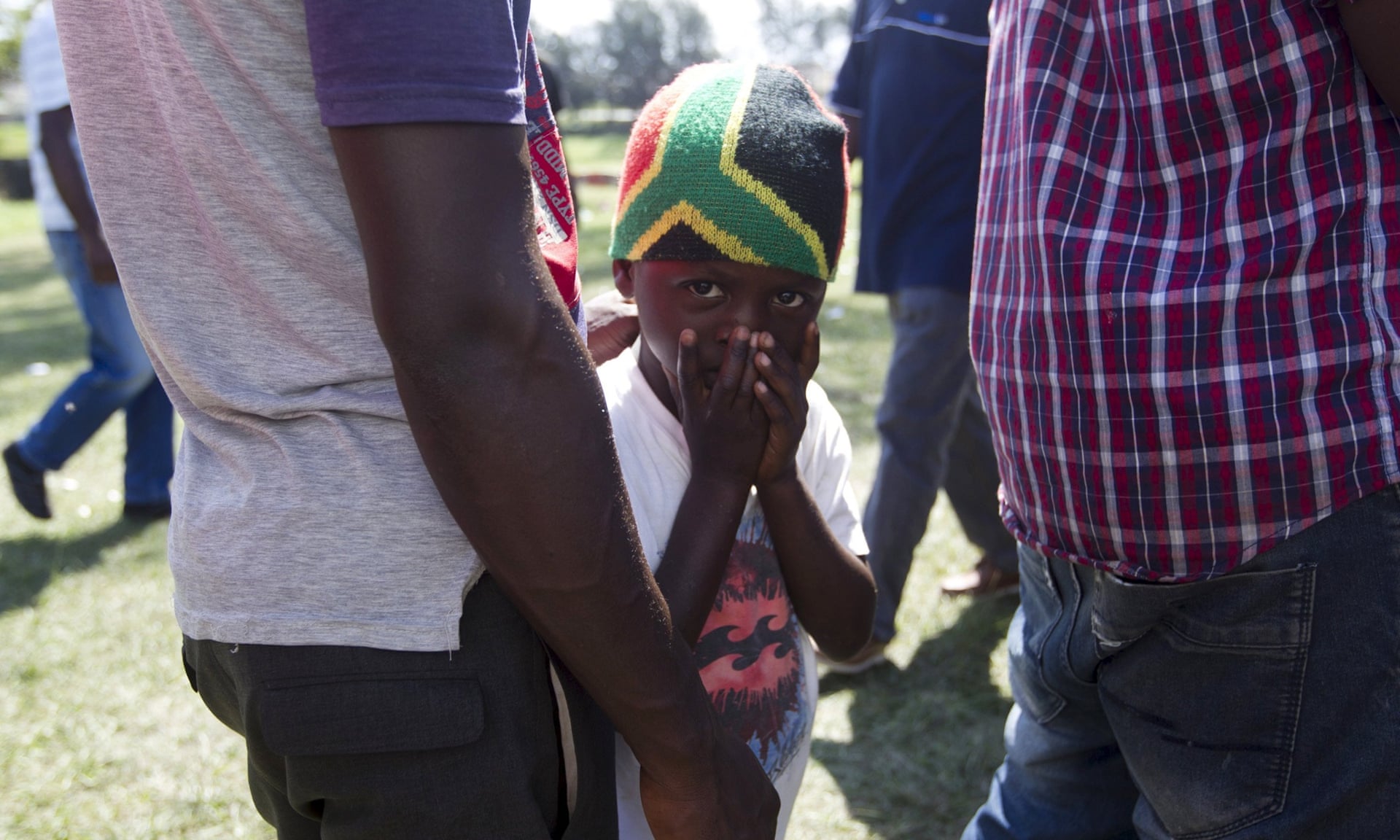
A foreign boy wearing a hat in the colours of the South African flag queues to register at a camp in Chatsworth, south of Durban: photo by Rogan Ward/Reuters via the Guardian, 17 April 2015
Xenophobia in South Africa: 'They beat my husband with sticks and took everything'
: For many Africans, South Africa represents a land of opportunity and a
haven of tolerance, but a wave of violence has tarnished this image and
sent foreigners fleeing for safety: David Smith in Durban for The Guardian, 17 April 2015 (updated 19 April 2015)
They came to South Africa
in search of a better life and, for a while, found the promised land.
Fungai Chopo got work as a builder, his wife, Memory, was hired as a
maid, and they shared a decent house with their two children. The
hunger, joblessness and poverty of their home in Zimbabwe was banished.
This week all that changed for the Chopos and for many like them. One
night just before midnight about 15 men burst into the family home,
clubbed Fungai until he bled, threatened to kill the family and stole
all they had, including the HIV medication that keeps Memory alive.
Now the Chopos are among roughly 3,500 immigrants sleeping rough in
crowded tents in heavily guarded transit camps not in a Congolese or
South Sudanese warzone but in 21st-century South Africa.
Foreigners have fled for safety from a recent eruption of xenophobic violence
in which at least five people have died, shops have been looted and
torched, and South Africa’s reputation as a haven of tolerance for the
tired, the poor, the huddled masses of a turbulent continent has been
shaken. “The fabric of the nation is splitting at the seams; its
precious nucleus -– our moral core -- is being ruptured,” the Desmond and
Leah Tutu Legacy Foundation said this week.
Worst hit is Durban, South Africa’s third-biggest city, to where the Chopos moved three
years ago. “They beat my husband with sticks, they took everything,
money, food, clothes for the baby,” said Memory, 31, wearing her last
remaining T-shirt and protecting her children Mercy, four, and
one-year-old John. “They said ‘if you don’t give us these things, we
will kill you. We want your shoes, remove your T-shirt.’ They took
everything, even passports and IDs. The police came but they didn’t do
anything because they are afraid of those boys.”

Xenophobia in South Africa: 'They beat my husband with sticks and took everything': image via th anonymous @ori_no_co, 17 April 2015
The Chopo family fled to a transit camp erected just over a week ago off Florence Nightingale Road in the suburb of Chatsworth. By Thursday it was offering sanctuary to about 1,200 immigrants, with eight tents in an area roughly the size of a football pitch, surrounded by armed guards and steel crowd-control fencing draped with drying blankets and clothes. There was a hubbub of voices as people formed orderly queues to register or take a lunch of bread and beans provided free by volunteers. Litter was strewn on the grass that turned muddy as rain fell.
The
government-run camp provides medicine and will allow Memory to resume
antiretroviral drug treatment for HIV. But she and her children are
sleeping on the cold floor of a crowded tent. “The conditions here are
basic. We are in mixed tents with men, women and children; some are
taking clothes off. The toilets are few and very dirty and people are
getting sick,” she said. “I feel scared. I can’t sleep at night because
the dreams are very bad, always seeing these visions from that night.
They don’t have ears, they don’t have eyes.”
Their aspirations in tatters, the Chopos plan to take a bus back to Zimbabwe.
“I came to South Africa for a better life and I worked for everything,”
Memory said. “But we are going home empty-handed, without funds,
without passports, without the kids’ birth certificates. Now we have to
wait for the transport provided by the government to take us home.”
Alongside her stood a compatriot, Joanna Moyo, 32, with a sick,
sleeping baby tied to her back. She said: “I was robbed and now I don’t
have anything, only my kids. I’m still worried those guys will come here
and attack us. We want to go home. Even though there is nothing there,
our lives are more important. I don’t think South Africa will welcome us
again –- they hate us now.”
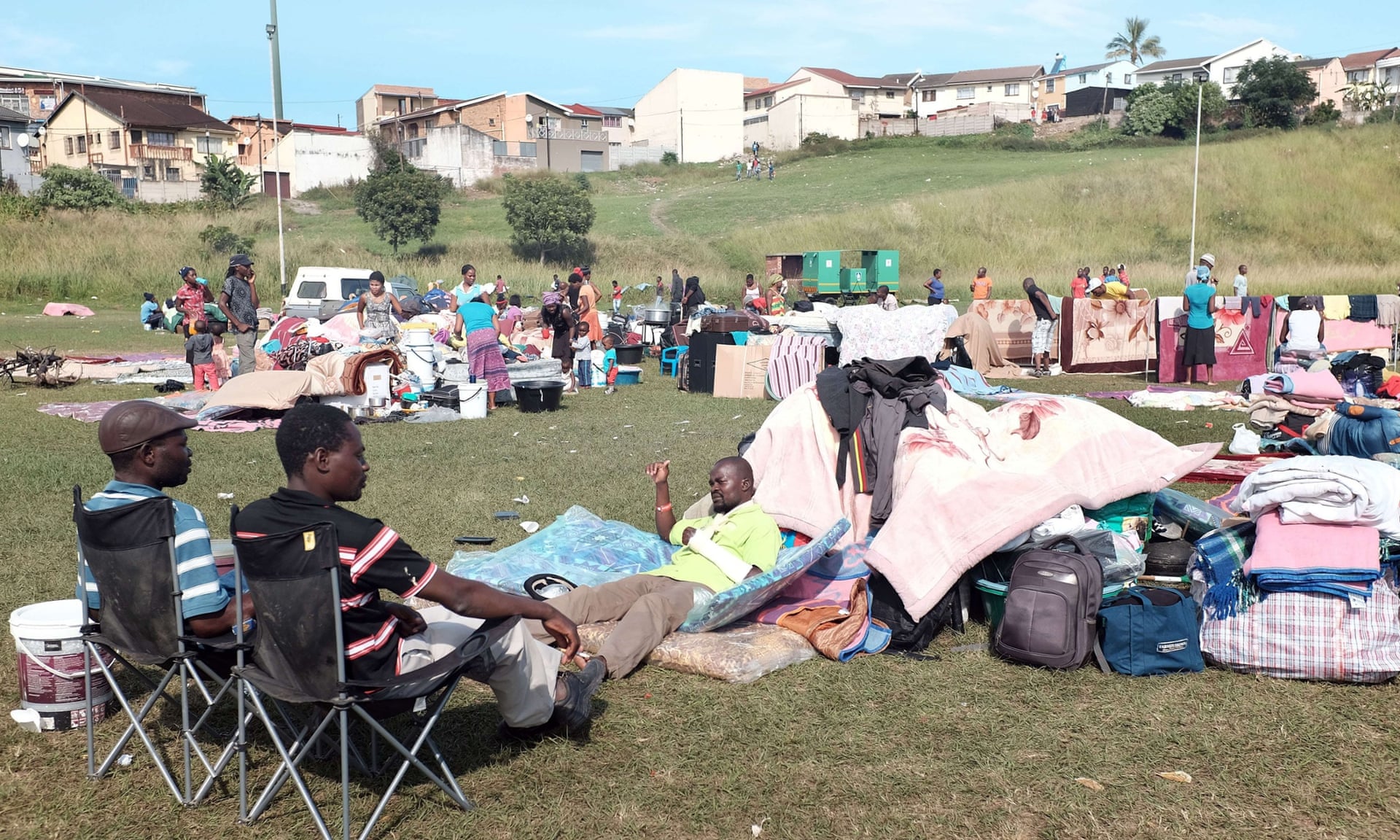
Immigrants shelter at the Chatsworth football grounds south of Durban: photo by Rajesh Jantilal/AFP via the Guardian, 17 April 2015
South Africa is to many Africans what America represents to many around the world: an escape, a fresh start, a land of opportunity. When gold was discovered in Johannesburg in 1886, it was soon being mined by men from a dozen African nations. Today the country is a magnet for Congolese, Ethiopians, Malawians, Mozambicans, Nigerians, Somalis, Zimbabweans and others fleeing conflict or seeking to improve their lot. Estimates of immigrant numbers vary from 2 million to 5 million, out of a population of 51 million.
But the recent wave of xenophobia has tarnished this image and fuelled resentment among those who accuse South Africa of an arrogant exceptionalism that looks down on the rest of the continent.
Paul Manhica, 34, a car mechanic from Mozambique, said: “I chose South Africa because the living conditions are better than any other country. I believed in the rainbow nation and the peace created since the apartheid system failed. It’s a shock for me that it’s not the democratic country that I thought. I’m disappointed that an African brother could do this. It’s a lack of love in their hearts.”
On Thursday Manhica was among about 100 Mozambicans who, in a stark image that few thought they would see in democratic South Africa, boarded a coach for home because their safety could no longer be guaranteed. He had lived here for 13 years was leaving behind a South African wife and child. “I came here for work to pursue a better life for myself and my family,” he explained. “I got a small business, but it has all stopped since the attacks began.
“A group of people shouted at me: ‘There’s one of them. Catch him and torture him.’ Some of them were people I’ve known many years. But I believe the Lord looked after me: I ran to the mall and phoned the police. Later the attackers went from home to home and there was great destruction. I couldn’t sleep. At 1am I heard neighbours being tortured, screaming and running for their lives.”
The Chatsworth camp has many such tales of disillusionment. Aaron Lavu, 39, a Zimbabwean who migrated 15 years ago and opened a small business, said: “South Africa is close to us and we were looking for greener pastures than the regime of Robert Mugabe. At first South Africans were friendly and we thought we would integrate. Then last week eight guys came and hit me with a hammer. They said: ‘You must pack your things and go home. We don’t need you here.’ It makes you feel lost, you can’t do anything any more, you’re not part of the society. We feel hurt because we thought we were going to our brothers.”
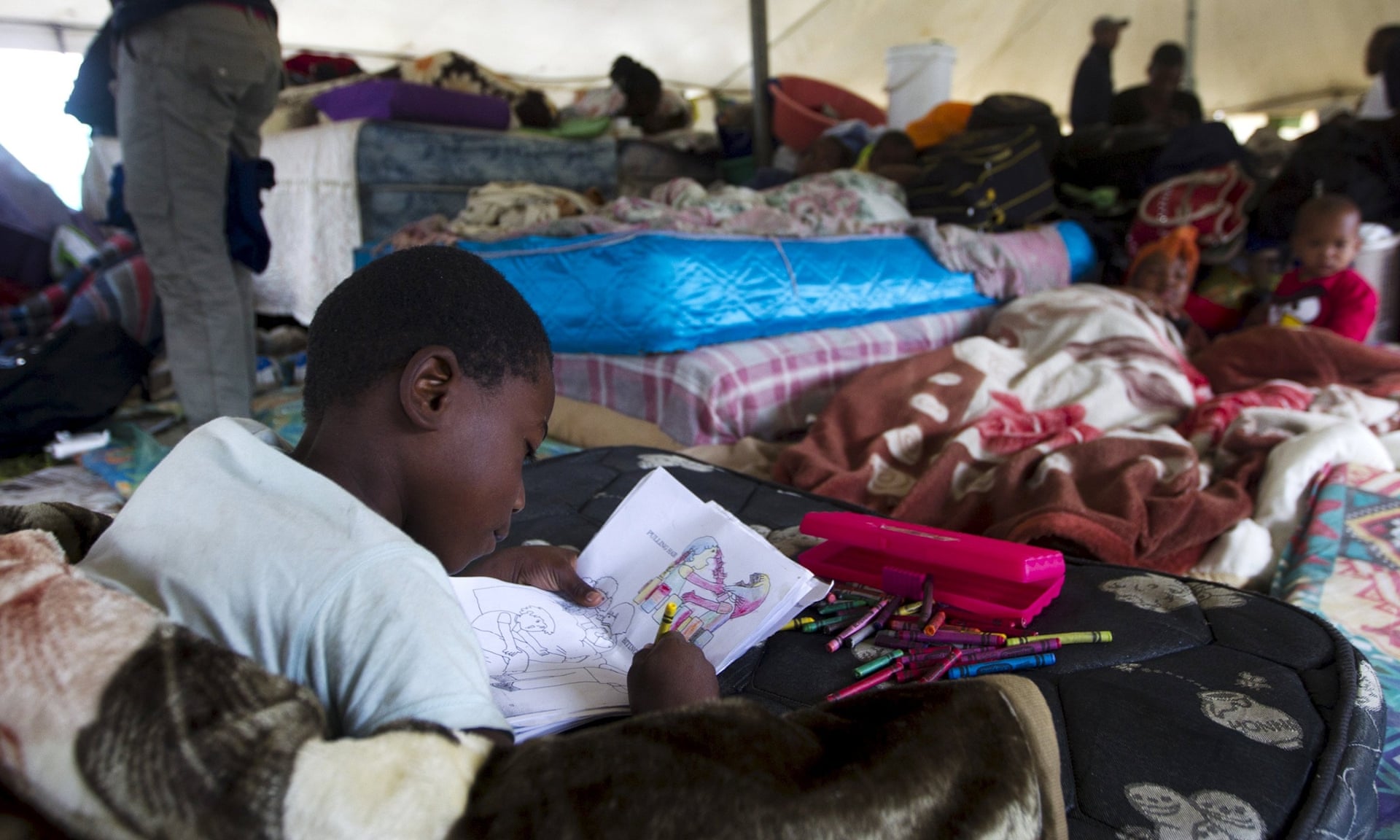
A child from Mozambique in a makeshift bed at a camp in Chatsworth, south of Durban: photo by Rogan Ward/Reuters via the Guardian, 17 April 2015
Searching for an explanation, analysts point to South Africa’s status as one the most unequal societies in the world, the violent legacy of racial apartheid and an unemployment rate recorded officially as one in four, and reckoned to be more accurately one in three. There have been frequent explosions of xenophobic violence over the past decade, notably in 2008 when 62 people, including 21 South Africans, were killed and more than 150,000 displaced.
Ingrid
Palmary, associate professor at the Wits University African Centre for
Migration and Society, cited a lack of faith in state institutions, easy
access
to handguns and a perception that foreigners are to blame for hardship.
“It takes a small trigger to spark a deep level hostility,” she said.
In Durban’s impoverished Bottle Brush informal settlement, brick
homes sit alongside shacks fashioned from metal sheets, wood planks and
chipboard behind fences topped by razor wire. Foreign nationals were
chased out last week and few residents were willing to talk, but Nana
Mkhonde, 29, was frank: “Our citizens took action because they wouldn’t
leave and they were being told they must leave. They came with nothing,
they can go with nothing as well. I feel bad because they left crying,
but we have no choice.
“They should go because we have no jobs. I’m a citizen and want to
work for 150 rand a day but foreigners will do it for 70 rand a day. In
the kitchens and the factories they are taking over our jobs. They bring
cheap goods and we don’t know where from. They leave their countries
with a lot of skills and we have nothing. Our education is not good
enough.”
The governing African National Congress has condemned the violence
but Mkhonde, an unemployed single mother, responded: “The government
says it’s wrong because when they give jobs they help themselves. If you
don’t have friends in the ANC, you get nothing. What about us? Our
government is doing nothing for us. The reason we’re fighting foreigners
is because of our government.”
The Zulu king, Goodwill Zwelithini, stoked the fires by calling for
foreigners to pack their bags and leave, while the government is still
wrestling with how to define the problem.
The police minister, Nathi Nhleko, described the attacks as examples of "Afrophobia", not xenophobia. “What you don’t see is you don’t see Australians being chased on the streets, Britons being chased on the streets and similar demands being placed on them that they should be leave the country and so on,” he said.
The police minister, Nathi Nhleko, described the attacks as examples of "Afrophobia", not xenophobia. “What you don’t see is you don’t see Australians being chased on the streets, Britons being chased on the streets and similar demands being placed on them that they should be leave the country and so on,” he said.
“What you effectively see is largely Africans against one another in a
sense now. That’s why I’m saying it represents a certain type of
political problem that has got to be dealt with by ourselves as South
Africans. In a sense, what we are witnessing are actually Afrophobic
kind of activities and attacks, resembling all elements of self-hate
among Africans.”
But
such comments have been met with scorn. Bishop Paul Verryn, who
for years gave shelter to thousands of migrants at Johannesburg’s
Central Methodist Church, said: “It’s semantics in the face of disaster.
It’s eating cake while
the world goes hungry. There’s been a thunderous absence of good
leadership.
“The profound shame that xenophobia brings on this nation is the same
kind of shame that apartheid brought on the people of this land. What
is so shaming is it alienates us from our neighbours and calls into
question the integrity of our entire constitution. It exposes the
systemic violation of injustice: today it is foreign nationals and
tomorrow it will be Indians and after that it will be whites. There is
anger and hatred growing among us.”
Yet amid the gloom hovering over Chatsworth camp there was a shaft of
light. Volunteers from the local community turned up with carloads of
bedding, blankets, clothes, food, nappies, toilet rolls, toothbrushes,
toothpaste and other essentials. Iqbal Ismail, 49, a businessman
organising breakfast, lunch and supper, said: “I’ve been here since the
first day. After seeing the conditions of the place, sleeping without
shelter, I didn’t have the heart to go back to work.”
Sue Clark, 50, from a property company that gathered donations via a
Facebook post, mused: “At the beginning of the week I was saying I’m no
longer proud to be South African, but now I’m saying I’m truly proud to
be South African. This is hope. Just so many people want to make a
difference.”

Xenophobia in South Africa: 'They beat my husband with sticks and took everything': image via th anonymous @ori_no_co, 17 April 2015
The Foreigners
That no one has every been convicted for these sickening recurring acts of xenophobia in #SouthAfrica is the problem [Abdikadir Ibrahim Danicha: photo by Ihsaan Haffejee via Al Jazeera English]: image via Kathleen Ndongmo @Kathleen Ndongmo, 1 March 2015
No Place Like Home: Khadija Patel and Azad Essa, Al Jazeera English, 19 April 2015
Running small convenience stores in the townships is a dangerous business for foreigners.
Often serving their customers through locked gates, they are accused of spreading disease, stealing jobs and sponging off basic government services like electricity, running water and healthcare.
But as violence against them continues, the South African government insists that criminality is behind it, not xenophobia.
*
In a haze of violence in late January, an angry
mob approached a convenience store belonging to Abdikadir Ibrahim
Danicha. They pried open its iron gates and looted everything inside.
Even the large display refrigerators were carried away.
Danicha's life was upended.
"South African people don’t like us," Danicha, a 29-year-old Somali national, told Al Jazeera, while sitting on his bed in a small room he shared with three others in Mayfair, a suburb popular with foreign nationals in Johannesburg.
The violent outburst that led to the looting of Danicha’s store began in Snake Park, in the western reaches of Soweto, when 14-year-old Siphiwe Mahori was allegedly killed by another Somali shop owner, Alodixashi Sheik Yusuf.
Danicha's life was upended.
"South African people don’t like us," Danicha, a 29-year-old Somali national, told Al Jazeera, while sitting on his bed in a small room he shared with three others in Mayfair, a suburb popular with foreign nationals in Johannesburg.
The violent outburst that led to the looting of Danicha’s store began in Snake Park, in the western reaches of Soweto, when 14-year-old Siphiwe Mahori was allegedly killed by another Somali shop owner, Alodixashi Sheik Yusuf.
Mahori, a South African, was allegedly a part of a
group of people who attempted to rob Yusuf’s store on January 19. His
death sparked a week of mob justice, which appeared to be inflamed by
xenophobia.
Scores of people were injured and hundreds of stores were looted. As the violence spread to nearby Kagiso, a South African baby was trampled to death.
For the foreign nationals affected by the violence, the actions of the mob were inexplicable.
"I don’t even have clothes … I lost all my things," said Masrat Eliso an Ethiopian national, four days after his shop in Protea Glen, a suburb of Soweto, was looted. "I don't have money. I don't have anything and I'm scared for my life".
Calm was eventually restored and most foreign-owned stores reopened. Shelves were restocked and customers returned, poking their arms through the closed metal gates of the stores to buy a loaf of bread. Groups of children clamoured to buy lollipops, while tired looking men eyed the fridges for energy drinks.
It appeared to be business as usual, but to the foreign nationals who returned to their stores in Soweto, there was a shared fear that they may soon be the subject of another attack.
Danicha returned to his shop in Mofolo, another suburb of Soweto, three weeks after the violence subsided.
"I don’t feel safe," he said in early March, outside his partially restocked shop.
He is one of a few hundred thousand Somali refugees in South Africa who have found some measure of success in operating small stores in townships around the country. He is also one among thousands of foreign nationals here who report multiple incidents of persecution.
But Danicha's life in South Africa has been filled with
hardship. And the scars, which run across the entire left side of his
body, act as a stark reminder.
In June 2014, he and a friend were running a small store in the
Johannesburg suburb of Denver, selling groceries and basic cosmetics
when their store was set upon by an angry mob.
"The first day, a group of people came to the shop. They wanted
to loot us. We closed the doors but then they started stoning us," he
said. "Then, on the second day, they just came and threw a petrol bomb
at the shop.
"I was inside the shop."
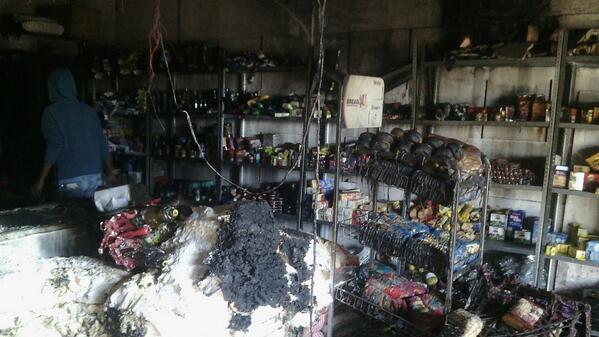
Four Somali Nationals burnt in Denver-Jhb 2 sustained less injuries 2
severely burnt fighting 4 lives @Jhb Hospital: image via Somali South
Africa @SCOBSA, 3 July 2014
Danicha was one of four people who sustained severe burns in Denver on that day.
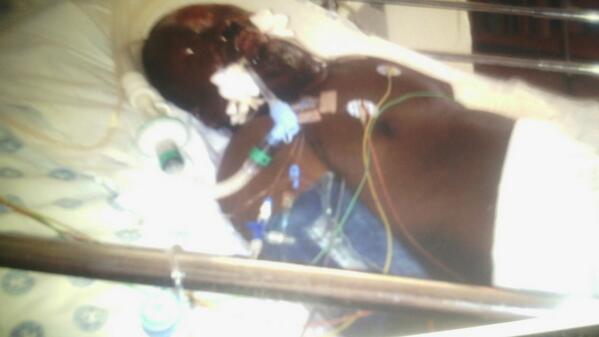
Four Somali Nationals burnt in Denver-Jhb 2 sustained less injuries 2 severely burnt fighting 4 lives @Jhb Hospital: image via Somali South Africa @SCOBSA, 3 July 2014
"Everywhere, everywhere I am burned," he said. "I was in hospital for three months."
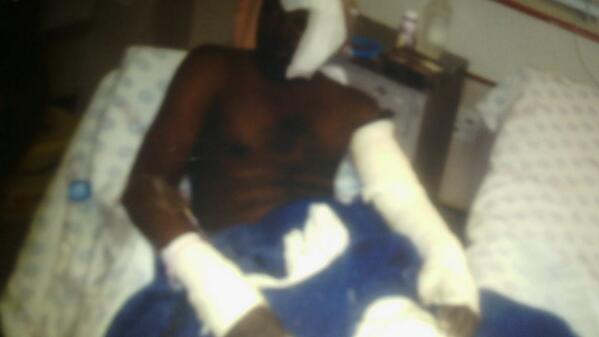
Four Somali Nationals burnt in Denver-Jhb 2 sustained less injuries 2 severely burnt fighting 4 lives @Jhb Hospital: image via Somali South Africa @SCOBSA, 3 July 2014
After being treated at the Charlotte Maxeke
public hospital, Danicha was then forced to rely on the Somali community
in Johannesburg for assistance.
“A brother of mine helped me out by giving me a share in a shop in Soweto.”
Two months later, another mob attacked his store.
"Unless I have the capital to start another shop, I don’t know what I can do."
Estimates suggest that more than 50,000 Somalis have fled to South Africa since their home country erupted into civil war in 1991.
Many of them have settled in townships across the country, operating small businesses among the poorest South Africans.
While the store in Mofolo has reopened, and Danicha helps his co-owners periodically, he has not been able to contribute to the capital needed to get the store sufficiently restocked.
"It is very difficult to start again and again," he said.
From Soweto and Kagiso the violence in January spread to Sebokeng in the Vaal delta, Eden Park in Ekurhuleni and Alexandra, in northern Johannesburg.
As researchers begin to unpack the stories of yet another bout of violence against foreign nationals in urban South Africa, many of the victims are beginning to feel that the pain caused was not just the loss of goods, earnings and trading days.
“We came to South Africa because we needed to save our lives,” Mohamed Rashad, an Ethiopian national from the Oromo community says. He runs a store in Snake Park and is angered by the lack of justice in cases involving foreign nationals.
“The law is forgetting us so soon we will also forget the law,” he warned.
Back at the store in Mofolo, Danicha watches as his co-owners serve customers through a gate. He is not sure what the future holds for him.
“At first I had a plan but the plan has been destroyed two times now,” he said.
With Somalia still reeling from conflict, he has nowhere else to go.
Despite the ongoing violence, South Africa is home.

Foreign-national shopkeeper in South Africa: photo by Ihsaan Haffejee via Al Jazeera English, 2015
2: The History
In May 2008, 62 people were killed in a wave of xenophobic attacks across townships.
Foreign nationals, mostly migrants from Somalia and Ethiopia, were dragged through the streets of Alexandra, barely a few kilometers from Johannesburg’s plush Sandton suburb, and “necklaced” -- a throwback to the summary execution tactic used in the Apartheid days.
A rubber tyre, filled with petrol, is forced around a victim's chest and arms, and set alight.
In an instant, the story of South Africa’s much-touted rainbow nation of black, white and brown people happily living together, fizzled away in an outburst of vengeance.
Tens of thousands of people were displaced,
forced to seek refuge in churches, mosques and even police stations. In
the end, it took military intervention to quell the violence.
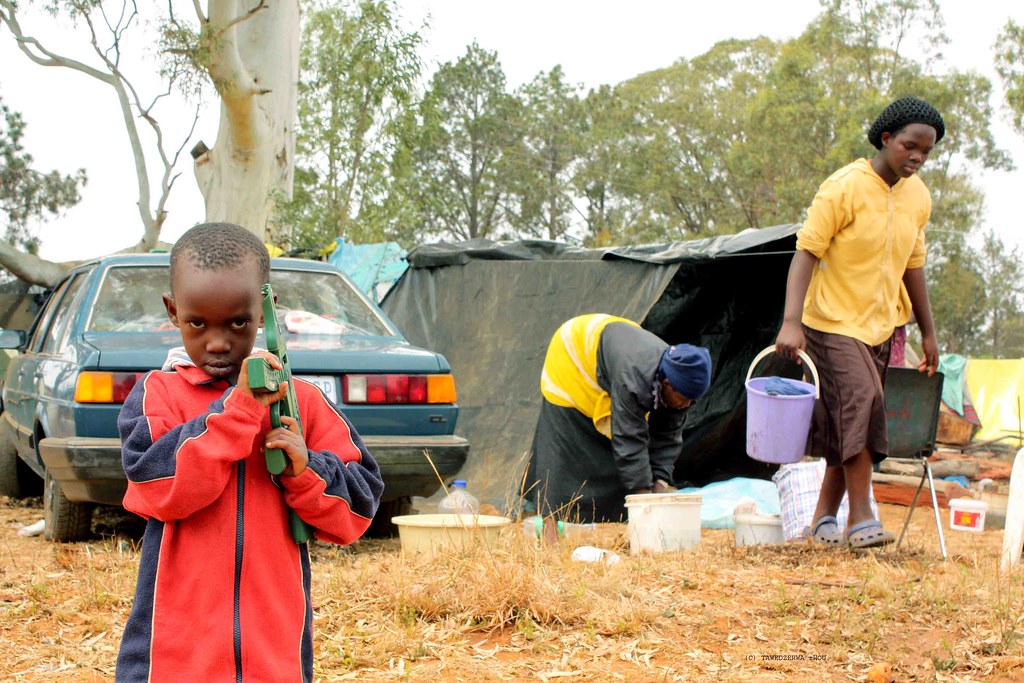
De deur camp refugees. Exiles find themselves out in the open again after several displaced families were evicted from a shelter in the vaal, south africa: photo by Tawe/Zplit, 1 October 2009
From the Zulu and Xhosa, to the Dutch and the British. Somali and Tutsi to Indian Tamil and Gujarati, Chinese and Zimbabwean.
However divided, unequal, and structurally flawed, South Africa is home to a very diverse population of people. A country with deep pockets, it remains attractive as a home for migrants, some of them seeking greener economic pastures, others safety and security.
The economy relies heavily on migrants, be it to make up for a massive skills shortage or as cheap labour in farms and mines.
Despite the violence meted out to foreign nationals, tens of thousands continue to seek asylum there, as many as 60,000 to 80,000 per year.
According to the UNHCR, there were almost 310,000 refugees and asylum seekers in the country as of July 2014. By the end of 2015, this number is expected to top 330,000.
Xenophobia in South Africa is not new. Some, like Michael Neocosmos, Director of Global Movements Research at the University of South Africa (UNISA), recall anti-migrant sentiment in the early nineties, when the new government was in the midst of planning new economic policies and politicians of all stripes began drumming up anti-immigrant sentiment.
“It is important to recognise that xenophobia can exist without violence. And it’s not sufficient to simply recognise it when people start killing each other,” he said.
A survey in 1997 showed that just six percent of South Africans were tolerant to immigration. In another survey cited by Danso and McDonald in 2001, 75 percent of South Africans held negative perceptions about black African foreigners.
In a most painful of ironies, many South Africans associate foreign black Africans with disease, genocide and dictatorships.
The ills of Apartheid: skin colour, complexion and passes, in this case citizenship, are still the determinants of a better life, or discrimination.
Little illuminates this disparity more than the infamous Lindela Repatriation Centre, built in 1996 for undocumented foreign nationals entering the country. Lindela, outside Johannesburg, has been a scene of abuse, corruption and incessant overcrowding. But the undocumented are also held at police stations, even army bases.
“There is evidence that even in 1994, the records have shown that foreigners were thrown out moving trains because they are accused of bringing diseases, taking jobs, the same rhetoric we hear today,” Jean Pierre Misago, a researcher at the African Centre for Migration and Society at the University of Witwatersrand, said.
“It didn’t start or end in 2008. It had been building up,” he said.
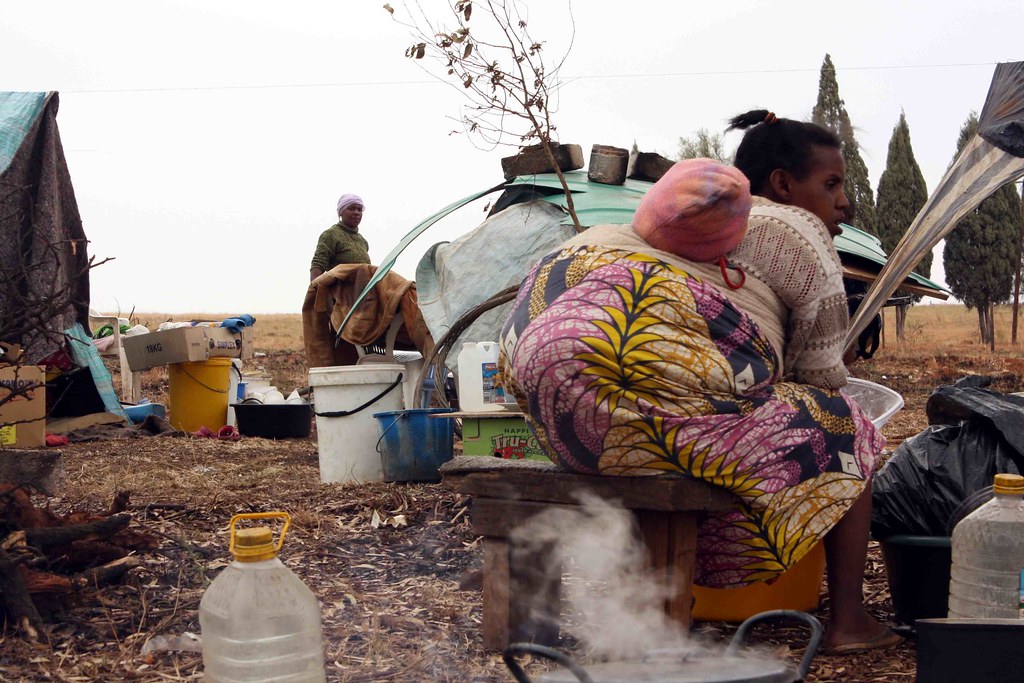
De deur camp refugees. Exiles find themselves out in the open again after several displaced families were evicted from a shelter in the vaal, south africa: photo by Tawe/Zplit, 1 October 2009
The violence that escalated in 2008, was distinctive and decisive. It affected black, African foreign nationals; poor and disenfranchised South Africans; in the townships, but there is no evidence to suggest white Europeans were attacked, or those from the Indian subcontinent.
A very particular demographic paid the price, but researchers remind us that at least one third of the victims were actually South African. Xenophobia is not a problem unique to South Africa.
With so many economies battling recession for the better part of the past decade, the deadly triad of competition-survival-blame has seen fear of the foreigner rise across the globe.
“Xenophobia is experienced in the north and the south, in the Southern African Development Community (SADC) regions and other countries. It’s a worldwide phenomenon,” Misago said.
But, contrary to popular belief, xenophobia in South Africa is not just a problem of the poor.
A national survey of the attitudes of the South African population towards foreign nationals in the country by the South African Migration Project in 2006 found xenophobia to be widespread: South Africans do not want it to be easier for foreign nationals to trade informally with South Africa (59 percent opposed), to start small businesses in South Africa (61 percent opposed) or to obtain South African citizenship (68 percent opposed).
The violence of 2008 was still shocking.
The country fell into mourning; South Africans understood that the innocence of democratic transition, purposefully packaged in cotton and celebrated with confetti, had finally been taken. The mask had fallen.
This was a country now reverberating under the internal schisms of rising dissent and desperation. The South African government, for its part, refused to label the violence as ‘xenophobic’.
Then President Thabo Mbeki, at the very end of his second term in office, said those who wanted to use the term were “trying to explain naked criminality by cloaking it in the garb of xenophobia”.
"When I heard some accuse my people of xenophobia, of hatred of foreigners, I wondered what the accusers knew about my people, which I did not know ... and in spite of this reality, I will not hesitate to assert that my people are not diseased by the terrible affliction of xenophobia which has, in the past, led to the commission of the heinous crime of genocide."
-- former President Thabo Mbeki
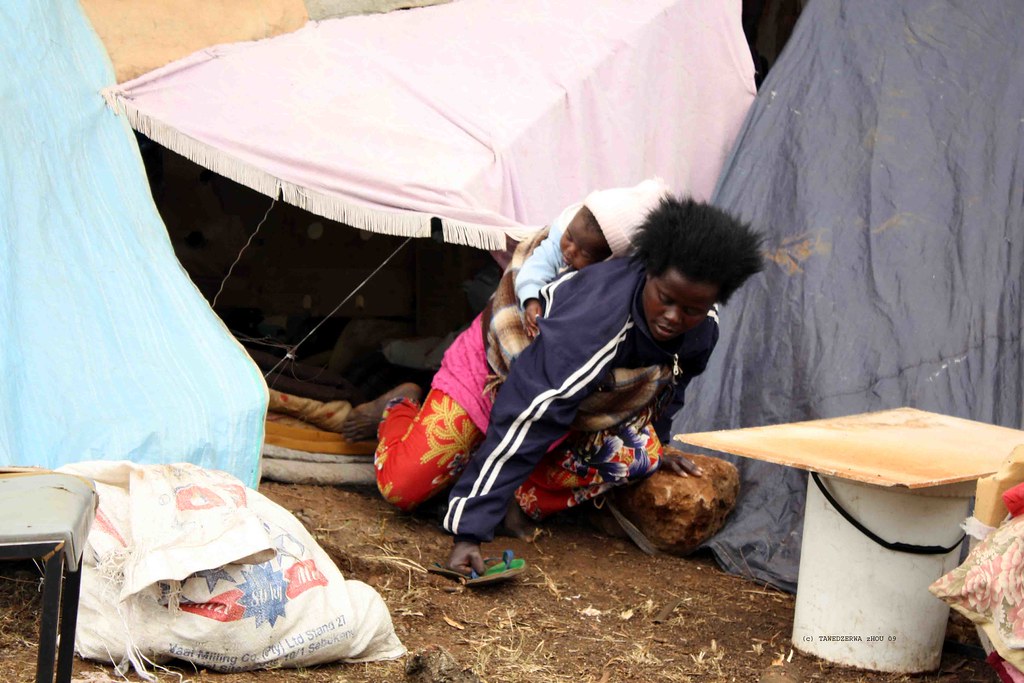
De deur camp refugees. Arine Tusenge from Burundi is among refugees that found themselves out in the open again after several they were evicted from a shelter on the vaal, south africa.They had been moved to the shelter after 2008's Xenophobia related attacks. They fear re-integration into society and prefer to stay in the open: photo by Tawe/Zplit, 1 October 2009
The government attempted to reduce the perception of the terror
meted out on foreign nationals as benign, unexceptional acts of
criminality. If they were orchestrated attacks, they said, ‘a third
force’ was behind the violence, apartheid parlance for acts perpetrated
by outside forces, or intelligence agencies.
“Of course violence against foreign nationals is criminal. But it can be criminal and xenophobic, it doesn’t have to be either or,” Misago said.
“Of course violence against foreign nationals is criminal. But it can be criminal and xenophobic, it doesn’t have to be either or,” Misago said.
And even before the onset of the latest wave of violence in 2015, there was more to come.
In early 2013, a young Mozambican man named Mido Macia was tied
to a police van and dragged through a street close to Johannesburg by
officers. He had parked his taxi on the wrong side of the road.
The violence was captured on video and spread across social media. Resounding condemnation from
the middle classes in South Africa and the international community
followed. President Zuma himself condemned the incident, but there was
still no acknowledgement that these incidents constituted ‘hate crimes’.
When the riots broke out in Soweto in January 2015, it surprised no one.
3: The Mob
On a busy Monday morning in mid-March in Soweto, Mphuti Mphuti, the acting head of the South African Spaza and Tuckshop Association, appeared on national TV, waving his South African identity document.
“Your government is saying this document means nothing. They are saying foreigners are equal to you,” Mphuti said.
In the weeks following a wave of attacks against foreign-owned businesses in
Soweto earlier this year, groups similar to this association and claiming to represent some 3,000 businesses, have been particularly vocal about the presence of foreign nationals in the townships.
“There is tension, there is anger, especially amongst those who fear competition from the so-called foreigners,” said William Veli Sithole a 56-year-old food vendor in Dobsonville.
But while the gall of the mob shocks other South Africans, their activities have also managed to escape censure.
However, business owners in the country are not likely to be found hurling petrol bombs, or rocks, at foreign owned shops. Often it is a mob, made up of the township mainstay of unemployed youth that form the front lines of service delivery protests, vigilante justice, and repeated attacks against foreign nationals.
“At the time of looting the mob rule takes over, you do not have time to reason; you (only) have time to do what others are doing,” Sipho Mamize, a representative of the NGO Afrika Tikkun's Wings of Life Centre, in Diepsloot, told the national broadcast.
Mphuti, however, said that at the heart of these township battles is the dereliction of government’s duty to its people that has spurred the resentment of foreign nationals here, culminating in the violent looting of foreign owned stores in January.
The people expect a lot from the government, he said.
For others, like Cynthia Khanyile, a street vendor in Jabulani, the blame lies elsewhere.
“I hate foreigners. I really don’t like them. They take business away from us.
We work hard, but then the foreigners come and take our business and our jobs,” she said
According to 2015 figures released by Statistics South Africa, 21.7 percent of all South Africans live in extreme poverty. At least 53.8 percent survive on less than $75 a month.
It is the politics of survival.
The close knit structures of migrant communities which foster micro-lending and bulk buying schemes popular among Somalis, for example, has only served to disempowerment among locals. The upward mobility of those “from the outside” amidst local inertia is frustrating.
“As South Africans, we still cannot speak about the fruits of this democracy,” Mphuti said.
Sociologist Devan Pillay said that despite the redistributive rhetoric of the ruling-party, the new South Africa has “unleashed a socio-economic system of market violence against the majority of the population.”
Here, the perpetrators of xenophobic acts are victims of the violence meted out by the market.
“Whereas in other instances this might have taken a gendered form, or an ethnic form, in this instance, the convenient scapegoats were easily recognisable foreign nationals,” Pillay writes in “Go Home or Die Here”.
South African townships are a scene of daily pandemonium with residents protesting against poor service delivery, low levels of development or improvement to their lives. Twenty years on, the majority of South Africans continue to live on the margins.
It is this desperate level of inequality, social scientists have warned, that continues to drive resentment and instability.
The attacks on foreigners do not happen in a vacuum, nor can they be explained simply by hatred of all things foreign. This, after all, is a country still searching for social and economic reconciliation.
"We have seen very little government intervention and upliftment of small businesses in the township," said Mphuti Mphuti.
“And that’s why we are saying before government can say we are equal with foreign nationals, government must empower small South African businesses.
But the critical thing is, South Africans must in the interest of people who carry the ID book, the green ID book is our license to get preferential treatment from government.”
Days later, a formal agreement between foreign traders and South African business leaders was eventually reached.
The drama of Mphuti’s TV soliloquy was perhaps necessary to assert the will of a subdued population. He understands the discontents in Soweto, and he also knows how those discontents spill out onto the streets.

4: The Officials
Mxolisi Eric Xayiya, an aide to Gauteng Premier David Makhura, took photos of the fridges and assortment of goods covered in thick plastic at a Somali-owned wholesaler in Mayfair.
He was being ushered through the area west of the Johannesburg city skyline days after foreign traders were attacked in Soweto some 20 minutes away.
Foreign owned stores were looted, foreigners were attacked and their lives threatened.
There, the parking lot of Awash Cash & Carry appeared to be overrun with the salvaged remains of foreign-owned stores.
“We only saw the foreigners leaving but we didn’t know where they were going,” Xayiya said in late January.
At the time, police were still battling to contain the violence
and more than 100 alleged looters had been arrested. The violence
threatened to spread even further.
And in an impassioned address to more than 500 affected migrants that day, Makhura condemned the violence, but insisted that it should not be seen as anything other than an act of criminality.
“What we have seen happening, ladies and gentlemen, is not xenophobia, it’s criminality,” Makhura told the crowd. “We have gone out to the community to talk, telling our community members that nobody in our communities must try to defend criminality.”
As Makhura continued to condemn the violence, he also commended the police for moving migrants out of what he called “difficult areas”.
A day after Makhura addressed migrant traders, flanked by senior police officials, the City Press made a shocking allegation.
The Johannesburg-based Sunday broadsheet said that people arrested in connection with looting foreign owned stores in Soweto that week claimed local police had spurred them on.
“Cops told us to loot,” the headline said.
Ten Soweto residents in various parts of the township, who had admitted to looting, told the paper that the police had either join in the looting, or looked on while they helped themselves to goods and fridges from foreign-owned stores, while victims raised allegations of police complicity, corruption and neglect.
Two days later, speaking on SAFM, a talk radio station owned by the public broadcaster, Lieutenant General Solomon Makgale, spokesperson for the South African Police Services vehemently rejected City Press’ claims. He said all allegations had to be registered as complaints to be investigated.
However, Makgale admitted that one particular police officer who had been caught looting toilet paper in a widely disseminated video had been identified and action had been taken against him.
“Unlike previous administrations, we don’t brush things under the carpet,” he said. “Any complaints of misconduct by police officers will be investigated without prejudice.”
The South African Human Rights Commission said its research has shown that “negative perceptions of and attitudes to justice and the rule of law abound at the level of affected communities”.
This then points to a “poor relationship between communities and the police and wider judicial system”.
Attacks against foreigners have continued. Researchers say recent bouts of violence against foreign nationals have already outstripped the carnage of 2008.
Still no official mention of ‘hate’, or ‘xenophobia’; the language carefully coiled.
In fact, language goes to the heart of the problem, with South Africa conflating rights with nation-state citizenship, despite the promises of the Constitution, to protect all. When the South African government speaks of justice, rights or solutions, the emphasis on citizenship is marked. In so doing, Zuma’s administration, time and time again descend to the very games engendered to create outrage on the street.
In February, following January’s attacks, President Zuma spoke of a “need to support local entrepreneurs and eliminate possibilities for criminal elements to exploit local frustrations.”
And even as Minister of Small Business Development Lindiwe Zulu, recently established a Task Team to look at the underlying causes of the violence against foreign-owned businesses, her point of departure left observers beleaguered.
Zulu was reported to the Human Rights Commission for inferring that foreign-business owners in South Africa’s townships could not expect to co-exist peacefully with local business owners unless they shared their trade secrets.
“Foreigners need to understand that they are here as a courtesy and our priority is to the people of this country first and foremost,” she was quoted as saying.
Minister Zulu later clarified her remarks, but the damage it seems, had already been done.
"@News24: LIVE: Police standoff w/2000 people in #Durban #SouthAfrica b/t locals, foreigners": image via HUMNEWS @HUMNEWS, 14 April 2015
5: The Activists
Addressing a group of around 300 migrant traders in early March, Amir Sheikh, the chairperson of the Somali Community Board in South Africa, appeared confident. Weeks after violence against foreign nationals erupted in Soweto, he was relating news of progress.
"We have had three meetings with the Minister of Small Business Development and we have given her a briefing of the challenges you face in the township, and what we think is the cause and the solution," Sheikh said.
"We know that things are much better now but we don’t want this to happen again."
Most of the displaced foreigners had been restored to their stores and a fragile calm had been negotiated. Representatives from both the community and the South African business community in Soweto continued to meet with government to negotiate sustainable conditions for foreigners and South Africans to coexist. Sheikh told the assembled migrants that a cohort of lawyers had offered to take up the case of traders who were affected by the violence in Soweto earlier this year.
The victims of the Soweto violence certainly have a case.
The South African Constitution, along with various international treaties ratified by the South African government, ensures the protection of all persons who reside within the country from violations to the right to liberty and security of person.
And when it comes to cases of violence against foreigners, the state is particularly obliged to protect the victims from individuals who perpetrate the violence.
#BREAKING: Police in Standoff with 2000 People in #Durban CBD: #0811NR #South Africa: image via Australia0811NR @Australia0811NR, 14 April 2015
Sheikh said its the safer, more practical option. He said that two years ago, Ethiopians, Somalis and Bangladeshis were attacked in Duduza in Nigel (east of Johannesburg).
“They actually interdicted the councillors, and the chairperson (of ANC Youth League), and these people were even all detained for up to one week .… But today you go to Duduza and and there is not even a single shop belonging to us there.”
Foreign nationals are reluctant to seek legal redress because of the consequences court cases often inspire. After all, how does justice protect the returning migrant looking to reintegrate into a society already hostile to foreigners?
Lessons learned, leaders of the migrant communities are now determined to prevent a mass exodus of foreign traders from Soweto. With more than 1000 foreign-owned shops in the township, Sheik says: “As long as we can co-exist and agree on certain terms, we don’t want to go the legal route.”
A South African Human Rights Commission report in 2010 found that “the judicial outcomes for cases arising from the 2008 violence have limited the attainment of justice for victims of the attacks and have allowed for significant levels of impunity for perpetrators”.
About 180 people were arrested in connection with the looting and violence in January. It’s unlikely any of these will result in convictions.
Neocosmos says that the lack of convictions in cases of violence against foreign nationals in South Africa strips the government’s approach through the criminal justice system of any efficacy.
“I know one person was convicted for throwing a guy off a balcony in Durban. How many people are in prison now as a result of those murders? These are murders that were committed on camera in front of everyone. How many people have been convicted?”
The best known case of xenophobic violence in 2008 is of “The Burning Man”, Mozambican national, Ernesto Alfabeto Nhamuave, who was burned alive in the Ramaphosa settlement in full view of the world’s media.
#Xenophobia in #SouthAfrica": image via Gerrie Claasen @gerrieclaass, 14 April 2015
"Suspects still unknown and no witnesses.” The lack of political will screamed through the short conclusion.
Just over a month after January’s violence against foreigners in Soweto, reports emerge of a petrol bomb thrown at a foreign-owned store in Doornkop. This time, it’s an Ethiopian national that has incurred severe burns. Police say they arrested nine people in connection with the incident.
Two months later this man is still in hospital. No word about his belongings or livelihood. The work of ‘a mob.’
Meanwhile, Abdikadir Ibrahim Danicha,the Somali national who was burned after his shop was petrol bombed in Johannesburg last year, is determined to have his case solved in court.
“I’ve been to court six times already for the one case about public violence and damage to property,” he said. “But the other case, about me burning, I’ve not yet been called to court about it.”
Danicha was one of the traders in the crowd that was addressed by Sheikh and the leaders of the newly-established “Township Business Development-South Africa” group. He is confident that the route chosen by the leadership, the choice of negotiations with government and Soweto business leaders is the right option.
“We have to try to work together,” he said. “Because there is nowhere else we can go.”

Kwanele Godfrey Gumede in Dobsonville: photo by Ihsaan Haffejee via Al Jazeera English, 2015
Voices: Dobsonville: Kwanele Godfrey Gumede
The trouble started in Snake Park and the violence spread
everywhere. We were here in the city, and each and every shop is owned
by the Somalians. You see what started this, we don't want these people
here.
I was born in Soweto, I know what is going on here. There is a way of dealing with this problem. I don’t want to blame government but people are hungry. Me too, I’m hungry. And people will do anything when they are hungry.
Because when we see lots of shops owned by this people and when we see the shops that was owned by our peoples have been closed.
Each and every shops that was owned by our people has closed. Our brothers our sisters had shops, but when these people come, nobody was buying from our shops, for example: you can sell less price, our people will seek products that's high cost prices, so we feel it's not fair.
I looted their shops, I took the stuff from the shop. We were many, many people, young people, older people, men and women, everybody was angry. There was no leader, it was just us fighting them. We broke their shops and took everything. We were all over Soweto. We went this side, and then go another side, finish that side and go another side.
We were busy looting all over the place.
I didn’t get caught by the police but some of my friends were locked up. Then the police released them after two, or three days.
But now the Somalians are all back and we feel angry, angry, angry, we feel the law is failing the citizen. Because all of them they do business, and we know for sure they don't pay taxes, because they pay taxes to the police. The police they come here and they demand cold-drinks, biscuits, snacks, sweets, and cigarettes from them. The police are involved in everything, because the police they come here and they demand.
I was working before but this year I don't have a job.
In this township there are a lot of young guys who have a matric certificate but no jobs. I don't have a matric, but when I see my friends, there are many people living here who are not employed. So I’m staying here, each and every day I can see things are not the same. All of my life I was staying here in Soweto. There are a lot a lot of people without work, I can't say that they don't want to work, but many of them they are trying, but, there is no change. I can't see change.
I can say even if one shop, they hire maybe two, or three people, it will make a big change in our country, I can't say in our country in our city. Because in our city there is full of them.
Yes, when I can see our people they don't have enough strength to open their shops again because everyone buys from the Somalians shops. Yes, I also still buy bread, milk and airtime from the Somalians’ shops.
I can buy the bread from South Africans shops for R12, for example, but the bread by the Somalian people is R11. Everyone will go to Somalian people, because of what, one rand. That's it.

Foreign-national shopkeeper in South Africa: photo by Ihsaan Haffejee via Al Jazeera English, 2015
#Xenophobic attacks forcing Somalis to vacate their shops, Philippi #SouthAfrica #xenophobia #Somalia #looting: image via Mabel Gasca @mabelgasca, 25 February 2015
#Displaced foreign shop owners pick up the pieces after #Soweto #looting #SouthhAfrica #EU #ANC: image via Mario @Go_Mario, 23 February 2015
#SouthAfrica | #Xenophobia shame: 'burning man' case shut via @TimesLIVE: image via Makamba Online @MakambaOnline, 19 February 2015
#SouthAfrica | #Xenophobia shame: 'burning man' case shut via @TimesLIVE: image via Makamba Online @MakambaOnline, 19 February 2015
Is #SouthAfrica becoming nothing more than a #xenophobic battleground? #Xenophobia: image via TheSouthAfrican.com @TheSAnews, 4 February 2015
Graffiti or not, this person's got their head on straight #Xenophobia #SouthAfrica #DamnStraight: image via Elaine Lehman @Lainishy, 1 February 2015
Reports hv emerged dat police helped locals loot foreign owned shops in Soweto. Shameful!!! #xenophobia #southafricar: image via prince @ThingsPrinceSay, 25 January 2015

A foreign national holds a knife following clashes between a group of locals and police in Durban amid ongoing violence against foreign nationals: photo by AFP via The Guardian, 14 April 2015

Johannesburg, South Africa. A Mozambican man lies in the street after he was reportedly stabbed by a mob in Alexandra township, Johannesburg, during fighting between locals and foreign nationals: photo by Kevin Sutherland/EPA via the Guardian, 18 April 2015
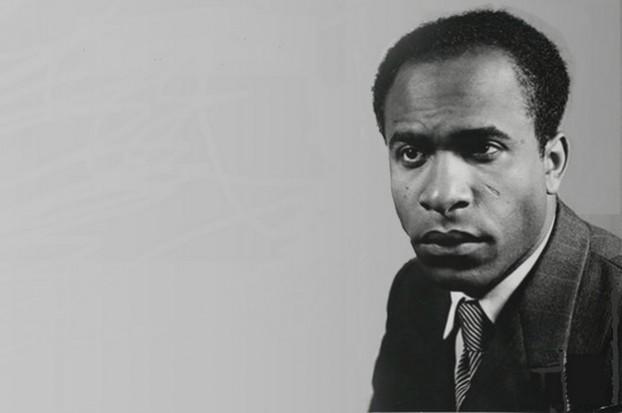
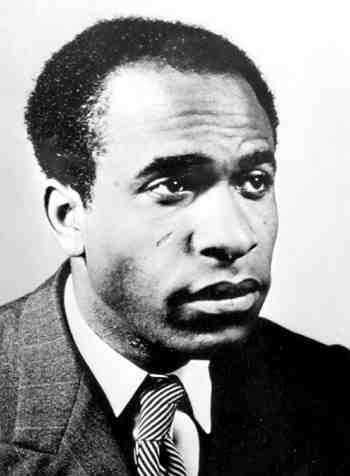
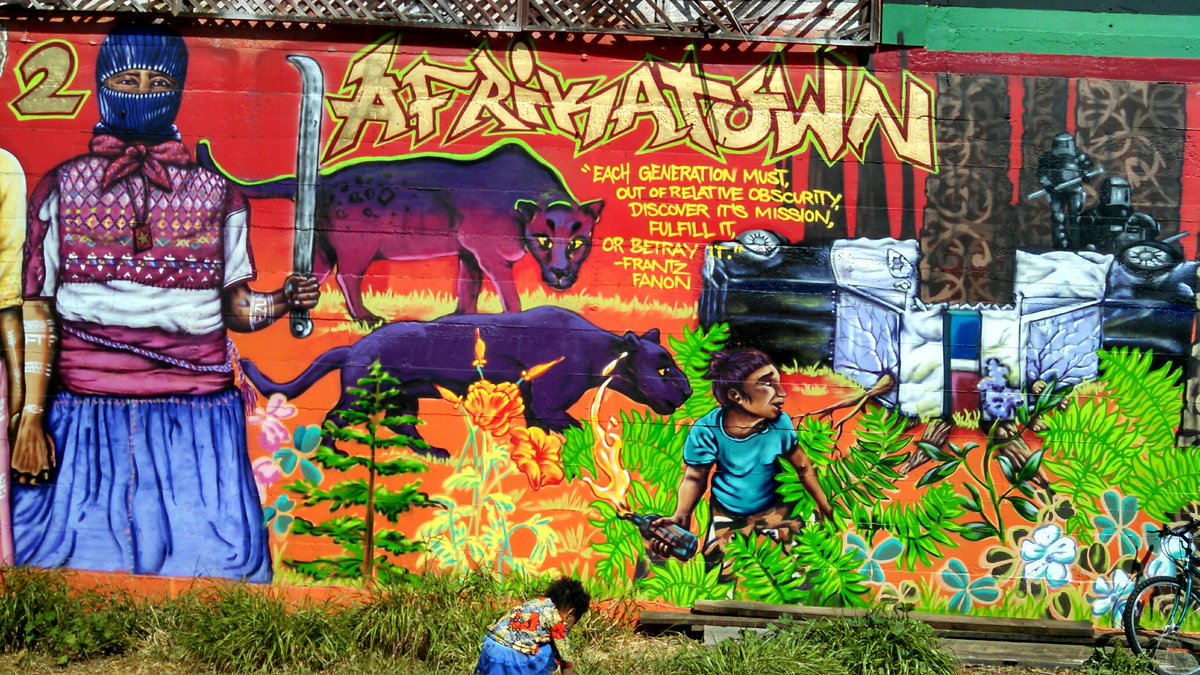


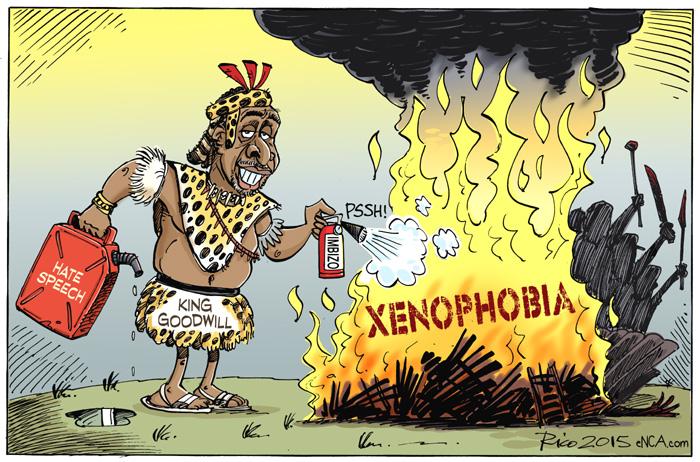
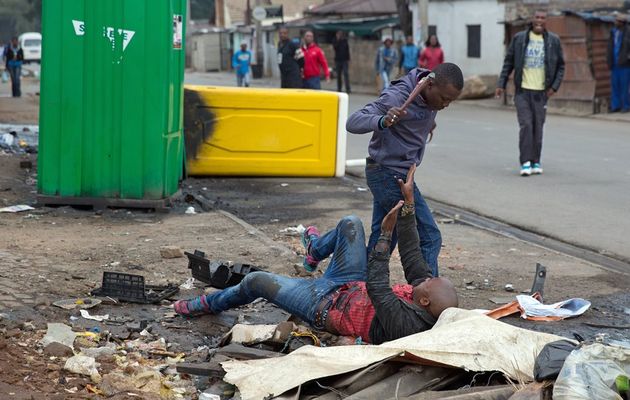
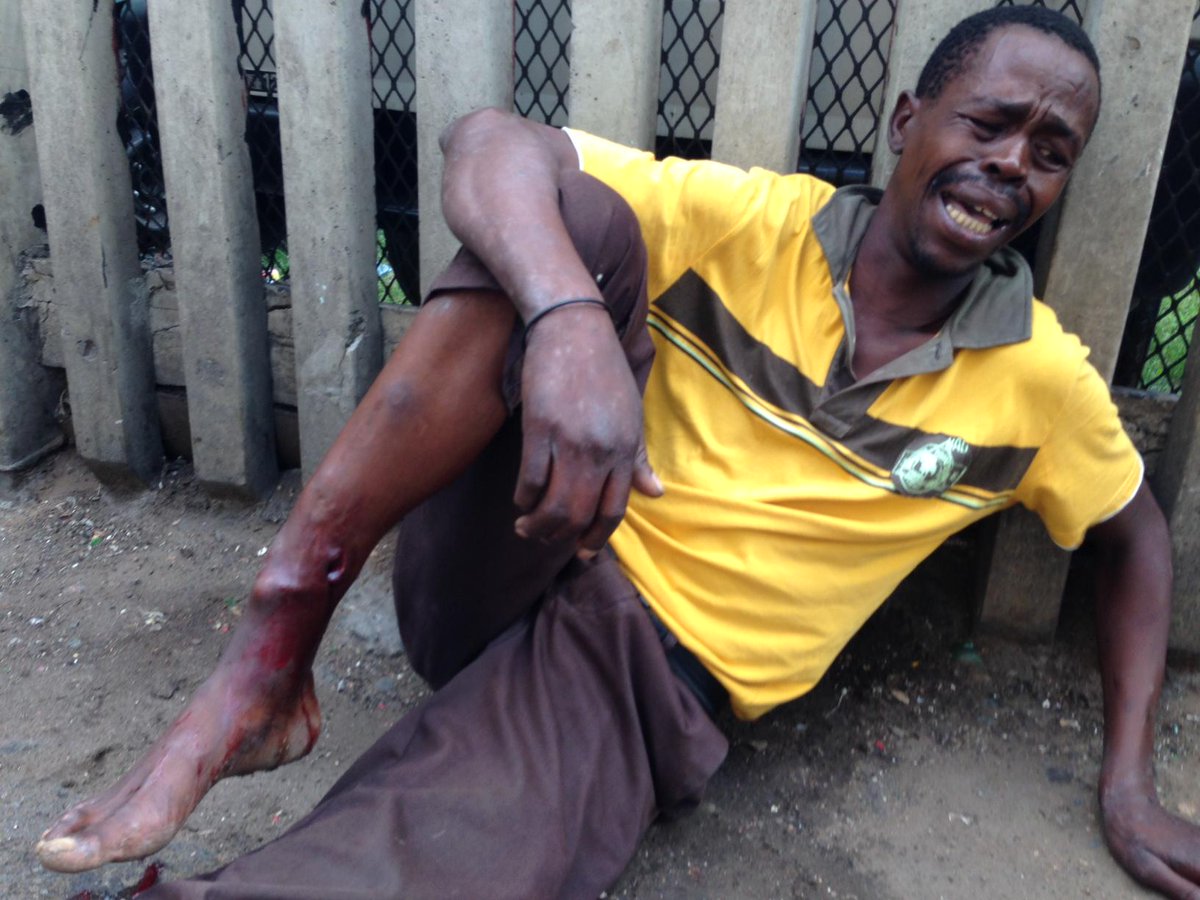


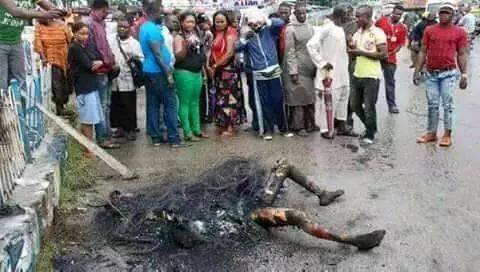
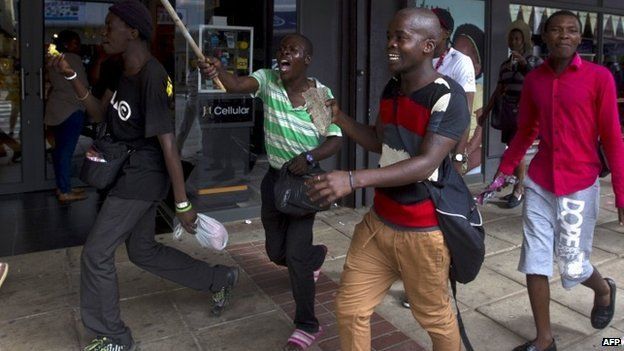


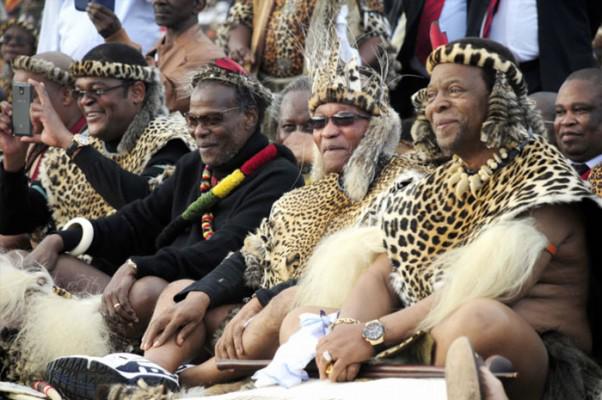

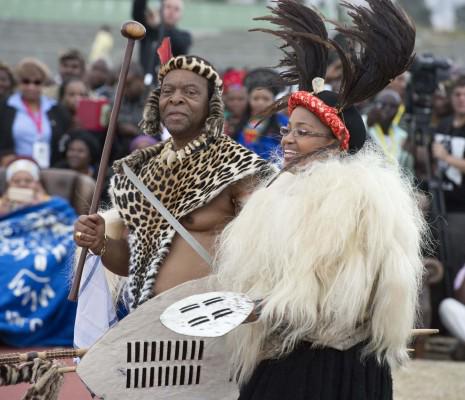


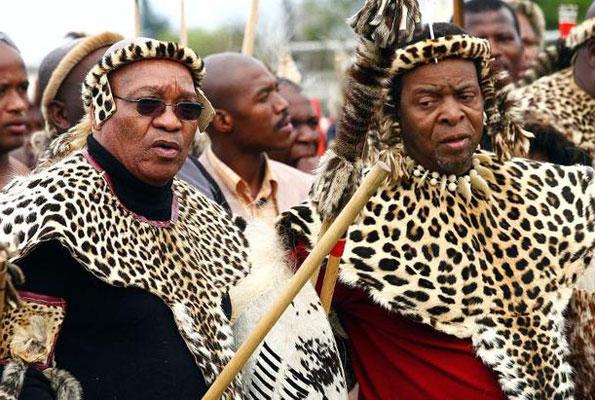
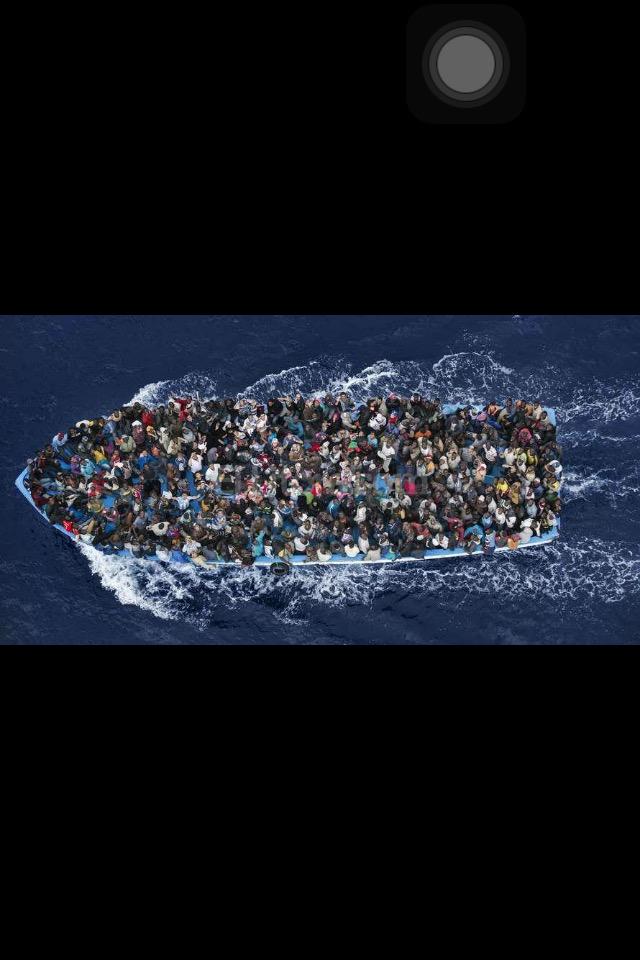
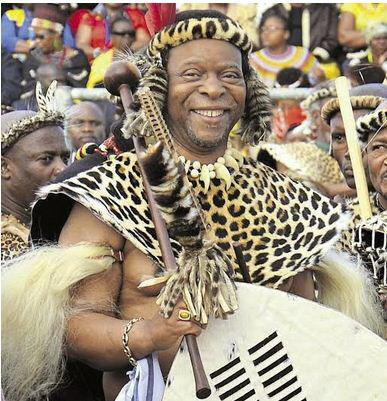
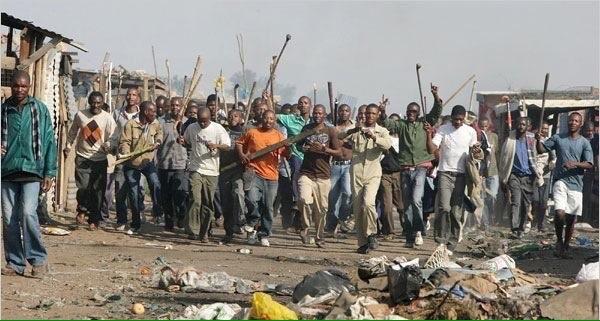
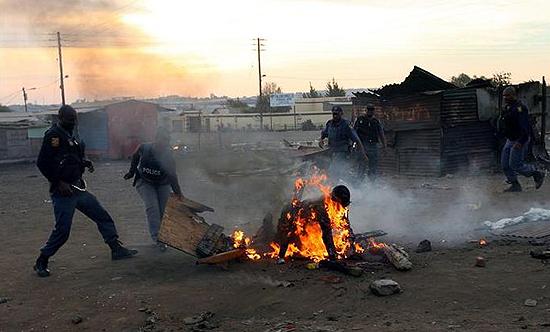
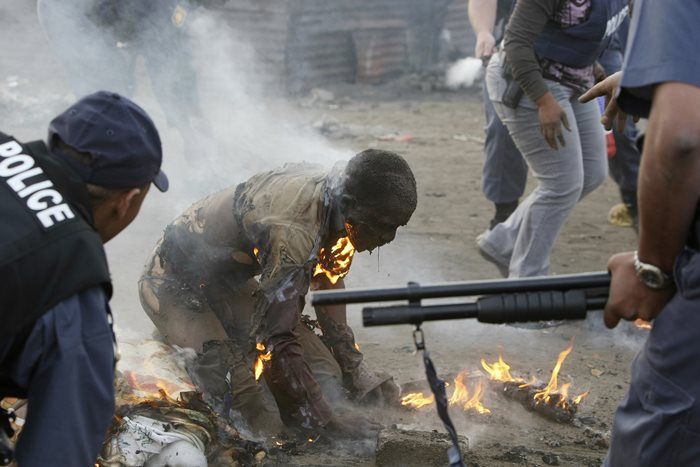
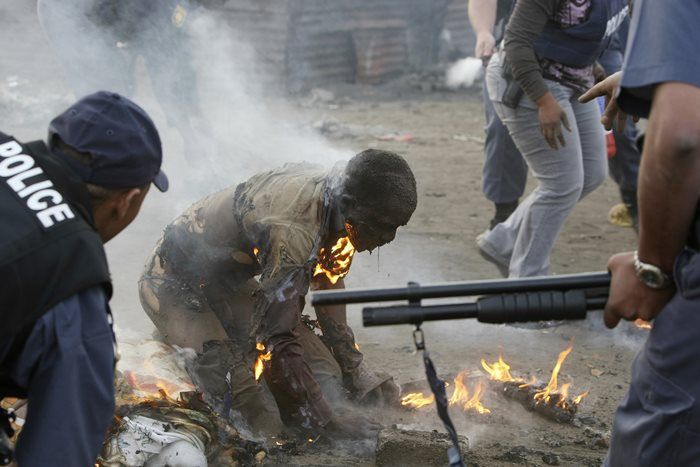
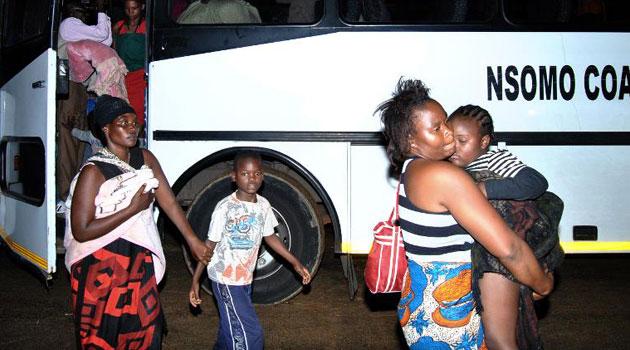
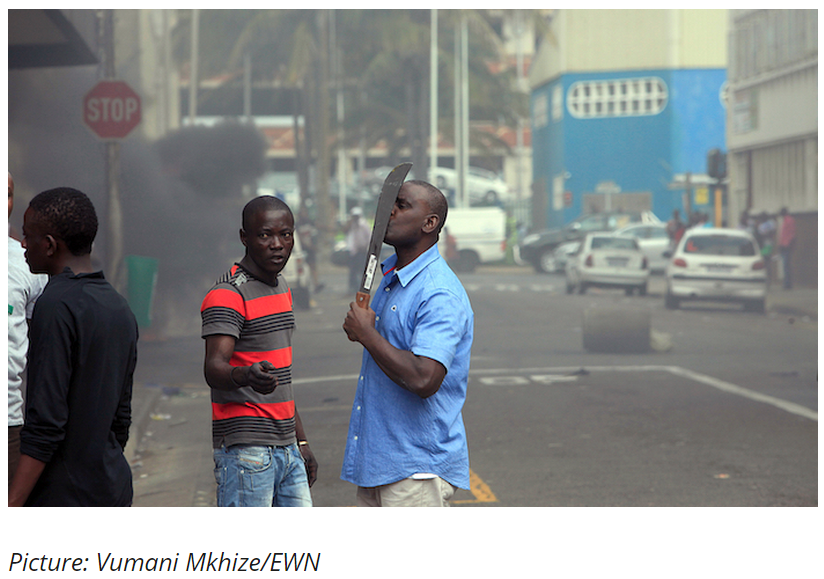
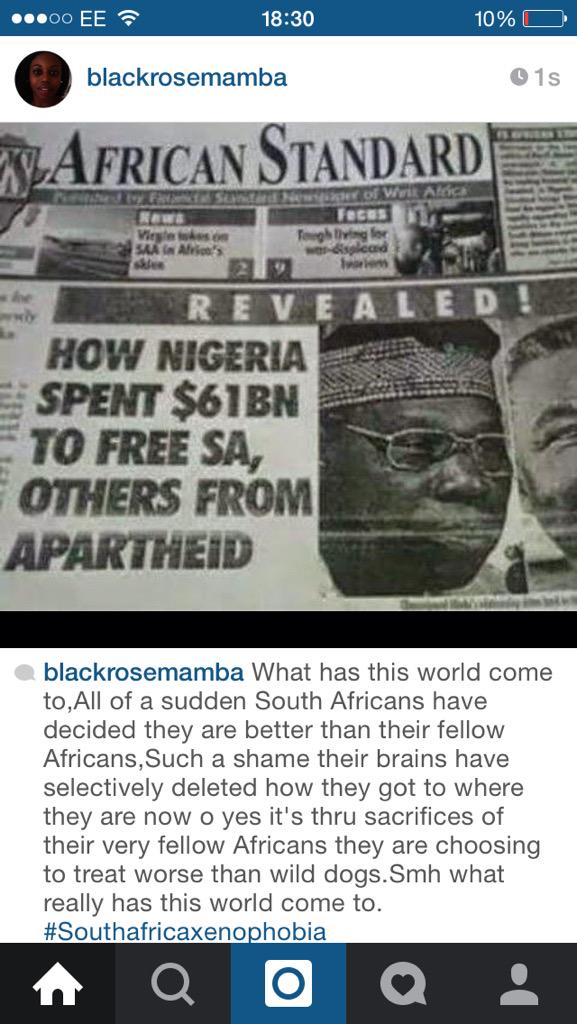


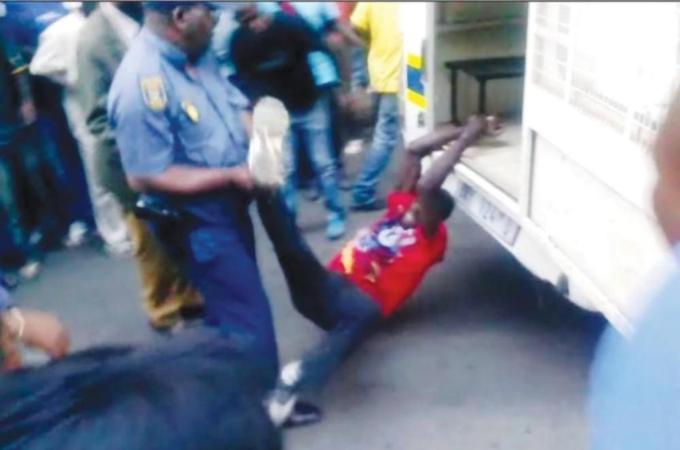
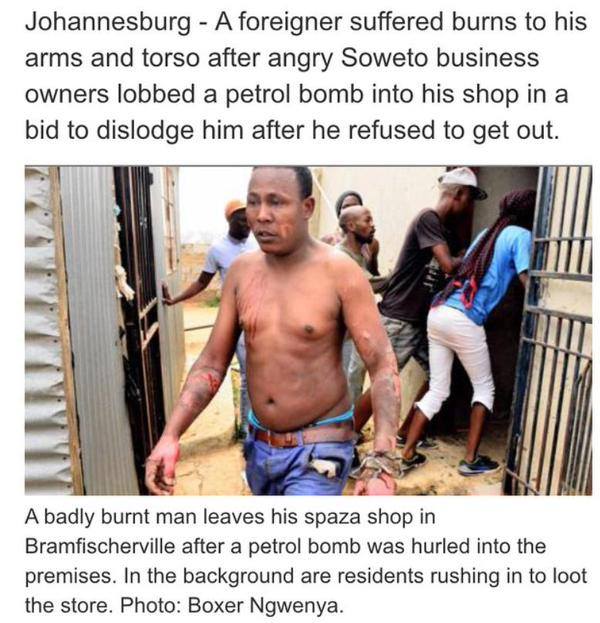
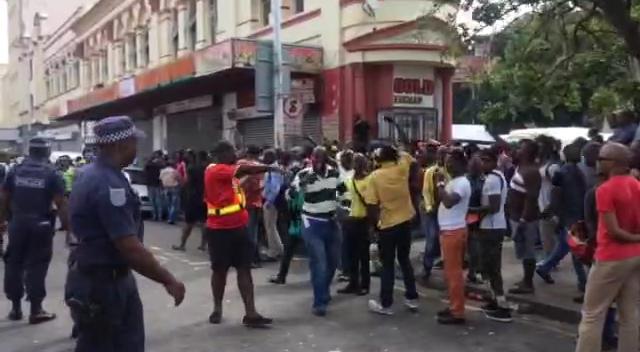

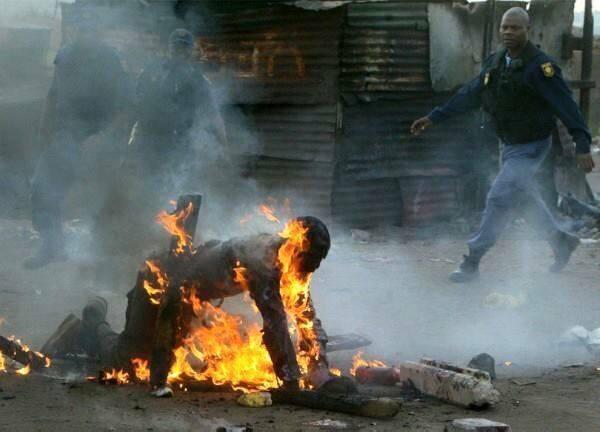
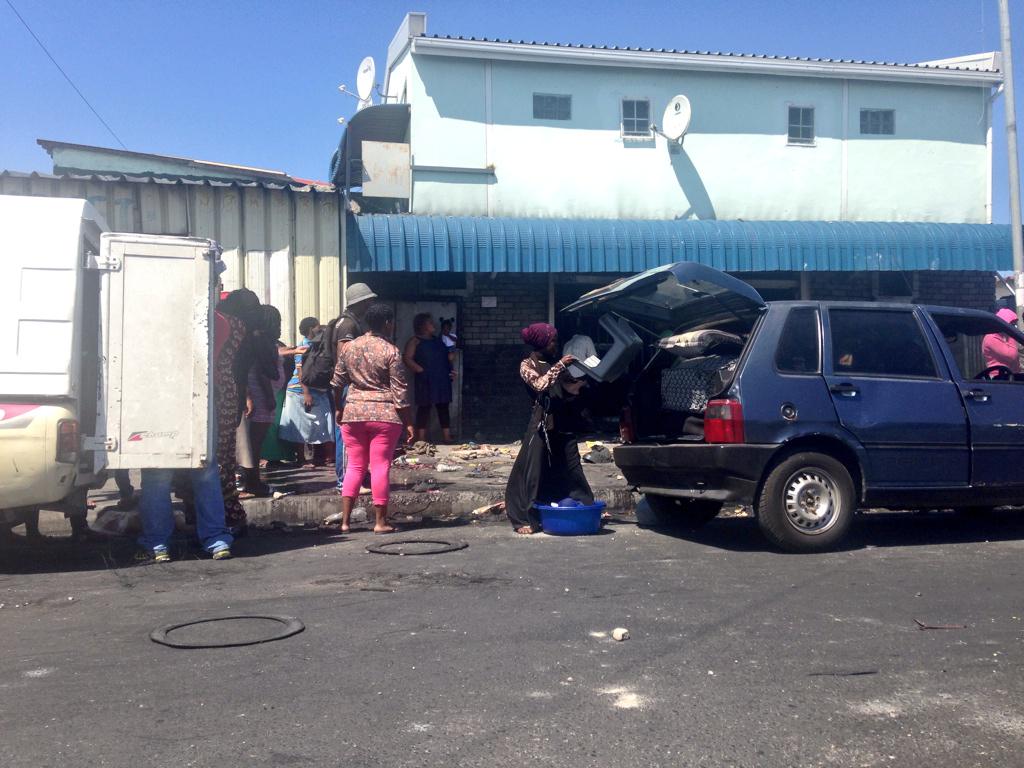
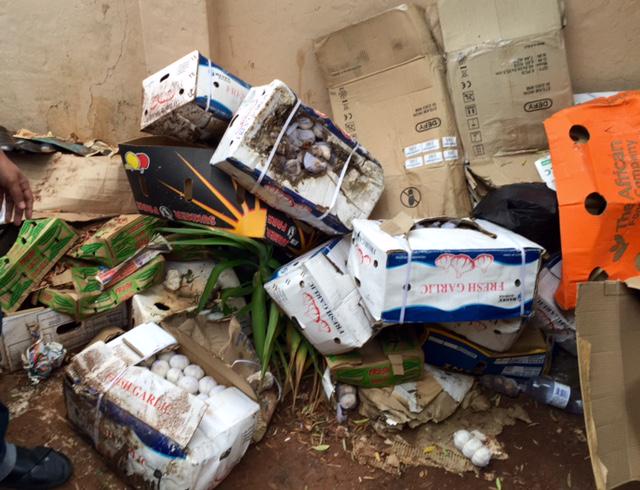
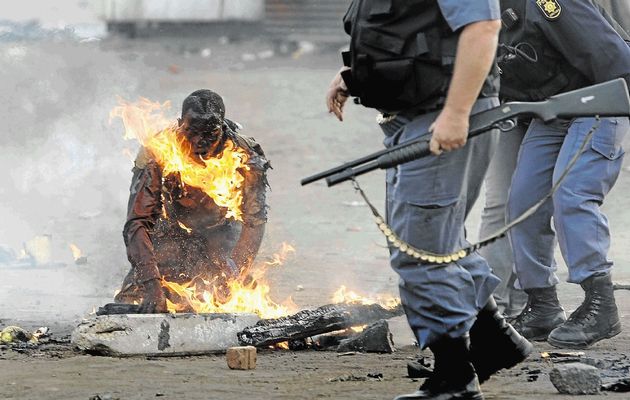
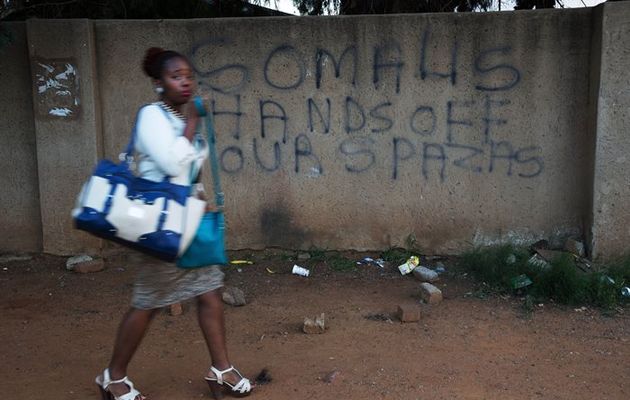

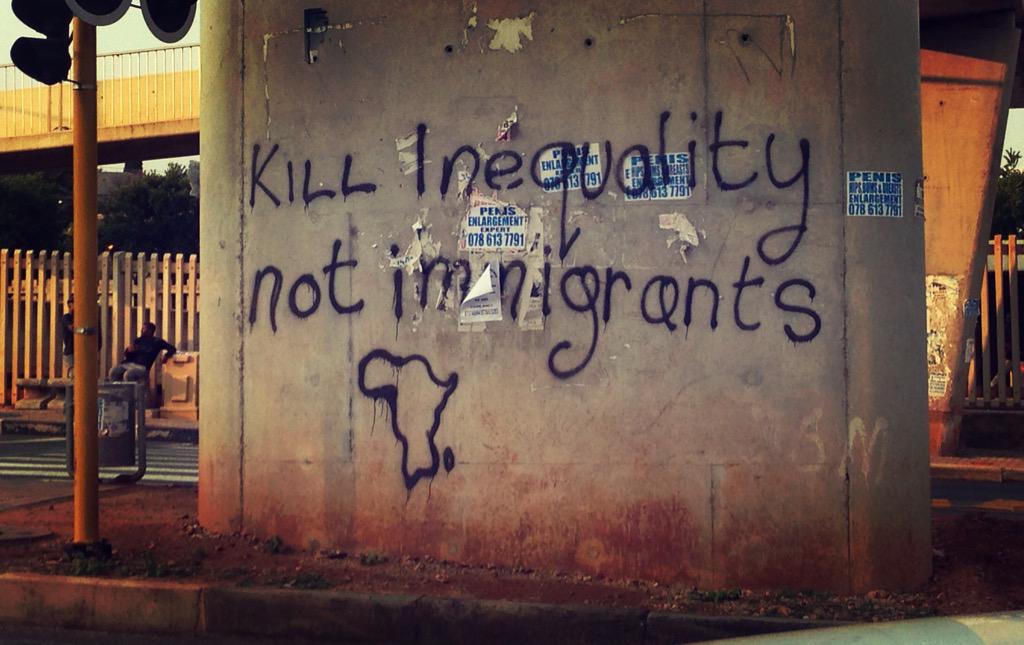




2 comments:
So many photos I wish I hadn't seen.
Kevin,
The closer we come to the things we did not want to see, and the more we have to think about those things, the nearer we get to the reality of the world that's going down with us -- or without us.
Lately when I catch my self wishing...
Very grateful to you for looking in any case, always great respect for your careful urban eye.
I found this manifestation of history baffling, unsettling, very challenging to attempt to sort from this distance, given the inevitable cultural and cognitive deficiencies, all the same worth presenting as a necessarily flawed near-suicidal attempt to share the unavoidable.
It's the immolation and machete-chopping of course that move everything way out beyond the pale, into the "jungle".
Here, different kind of jungle, still jungle, and my experience here has been that stab and gunshot are not much prettier than machete-chop and pyre, when you actually have to look.
Partner suggests "subject matter untouchable", perhaps the case.
What else is worth touching any more..
Post a Comment